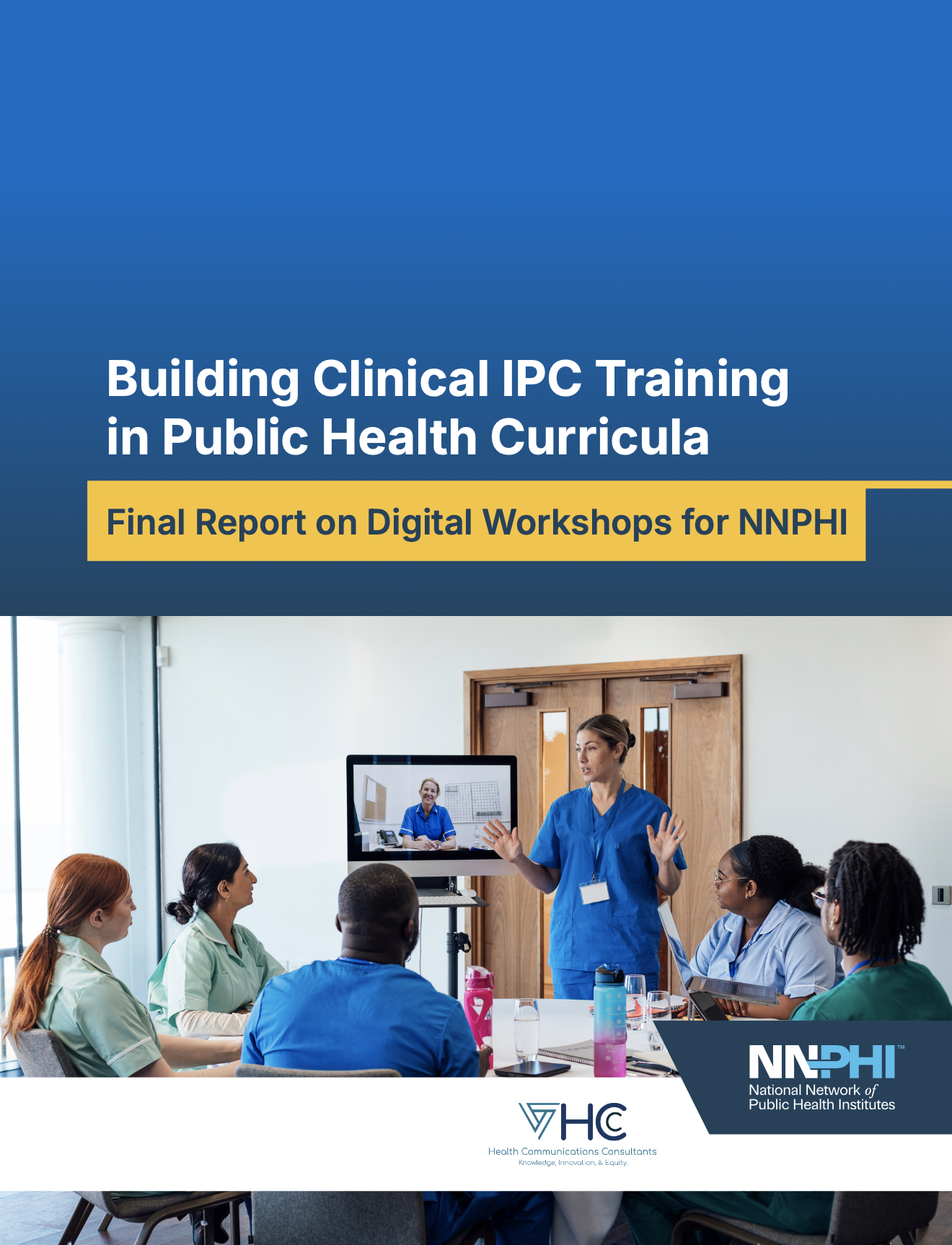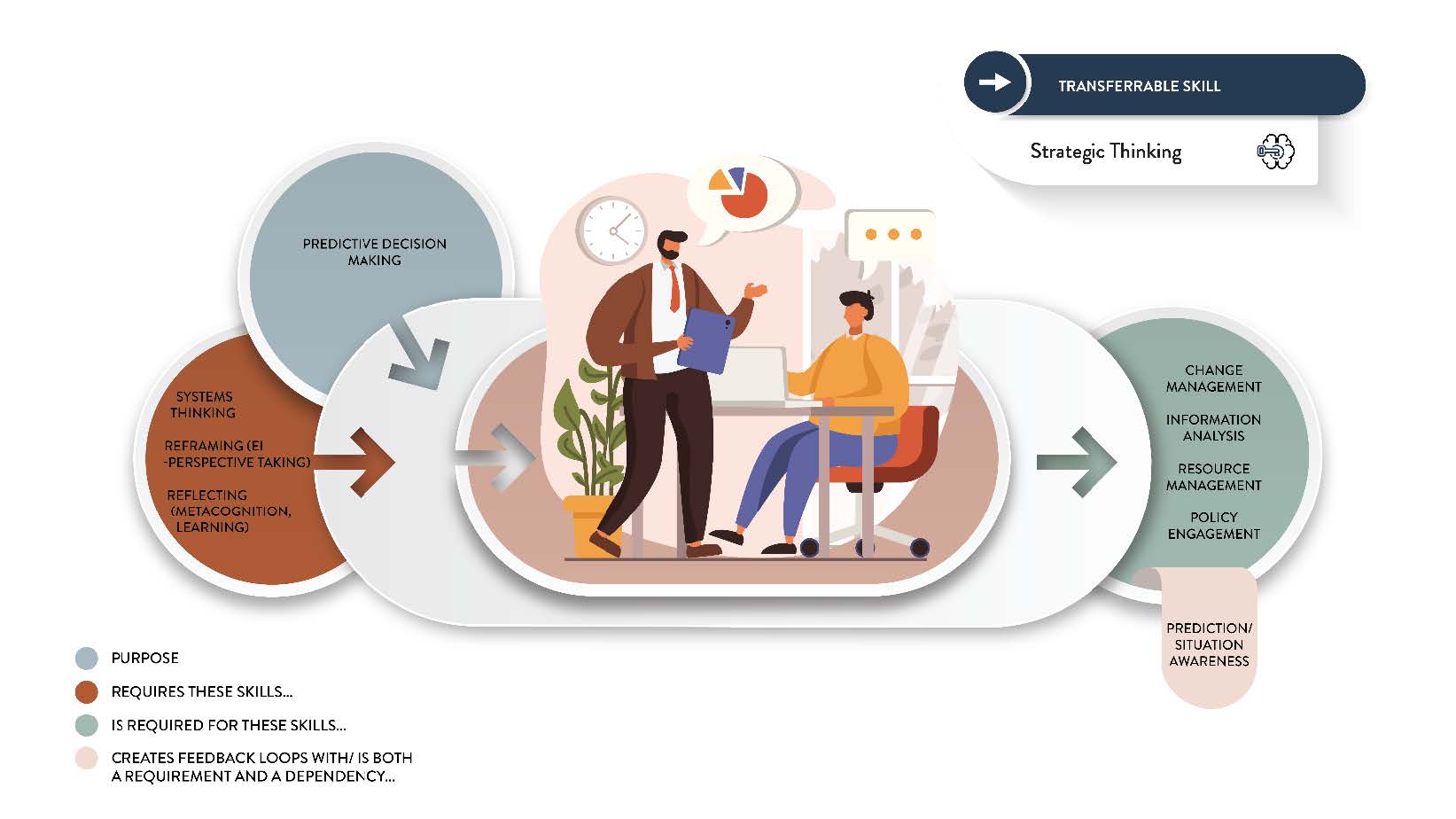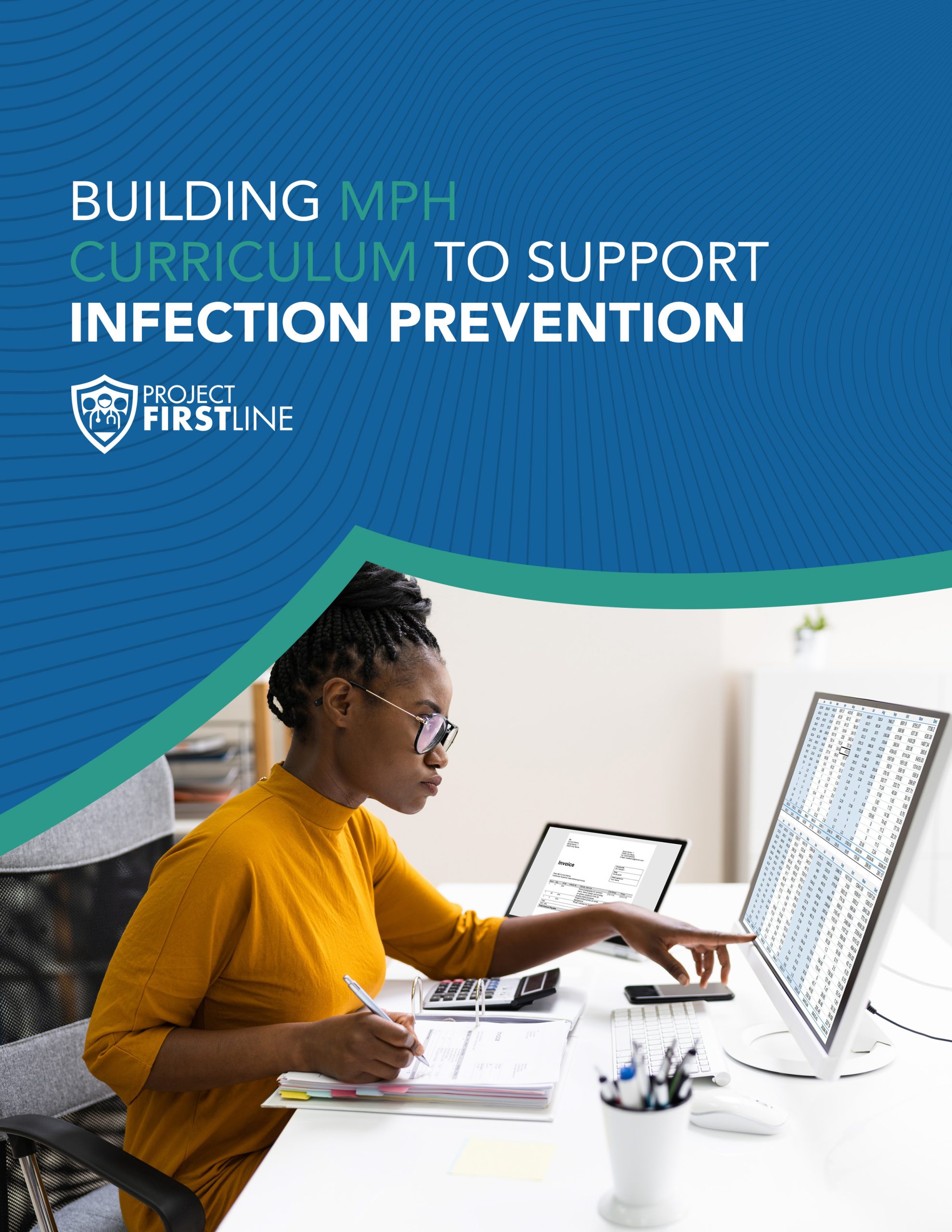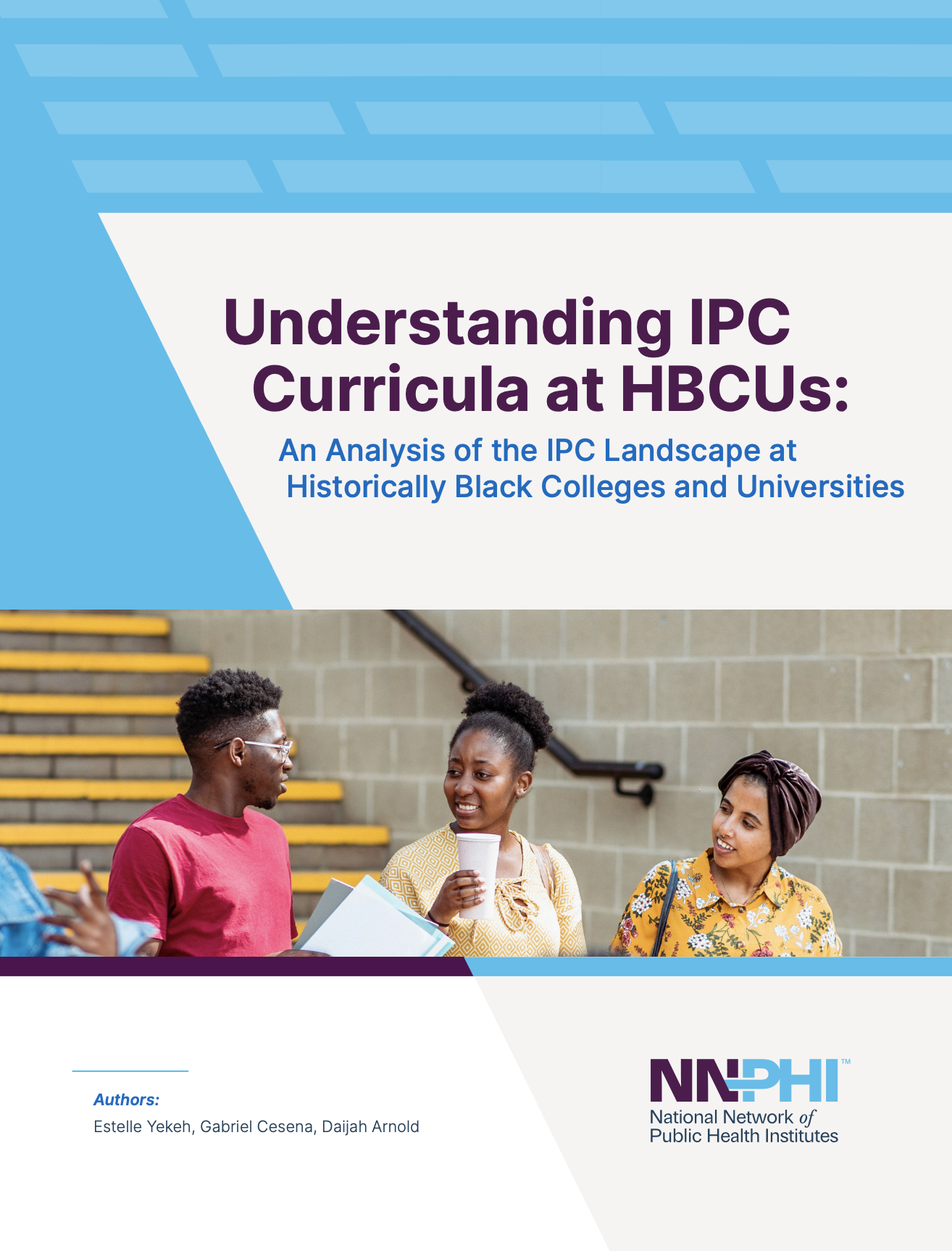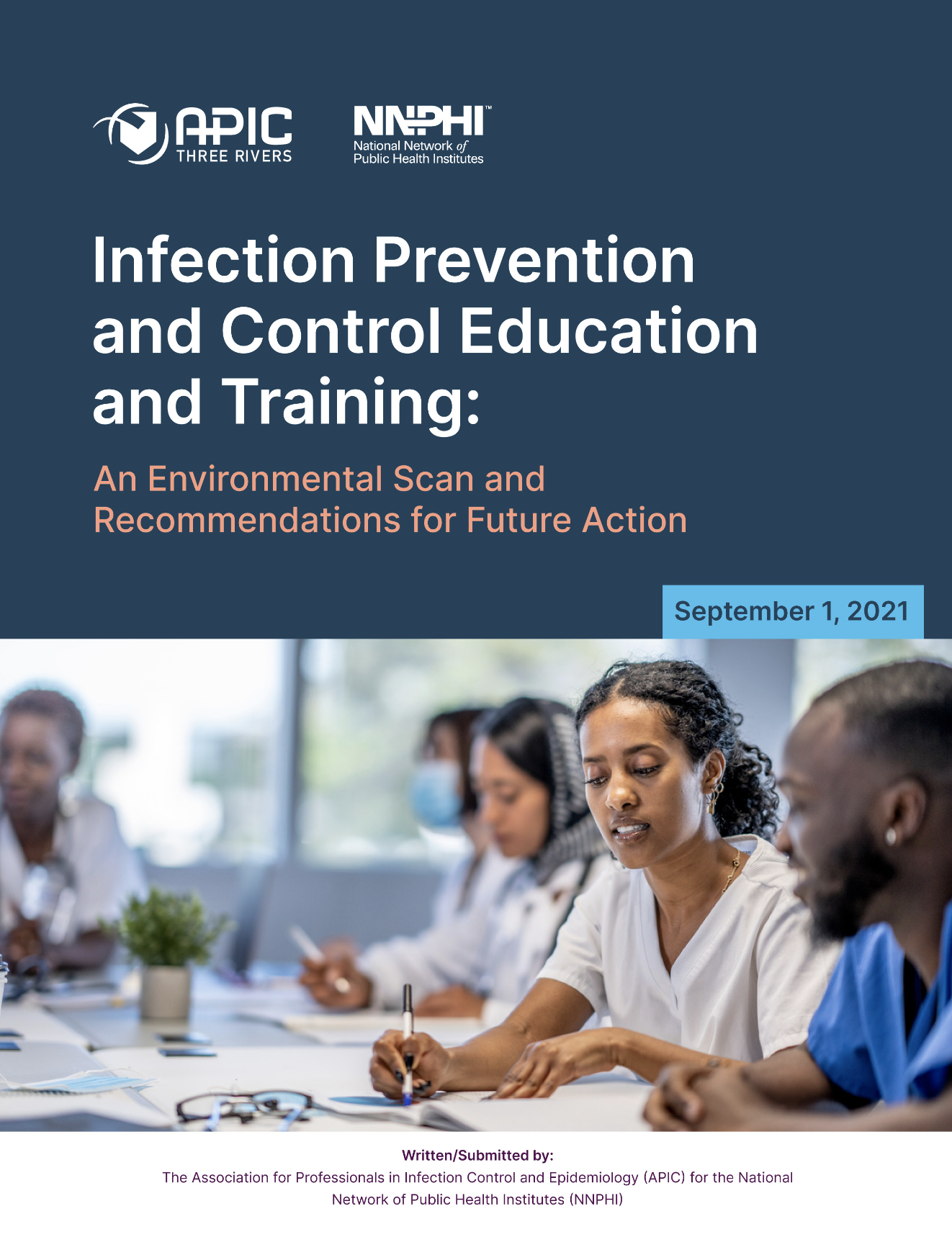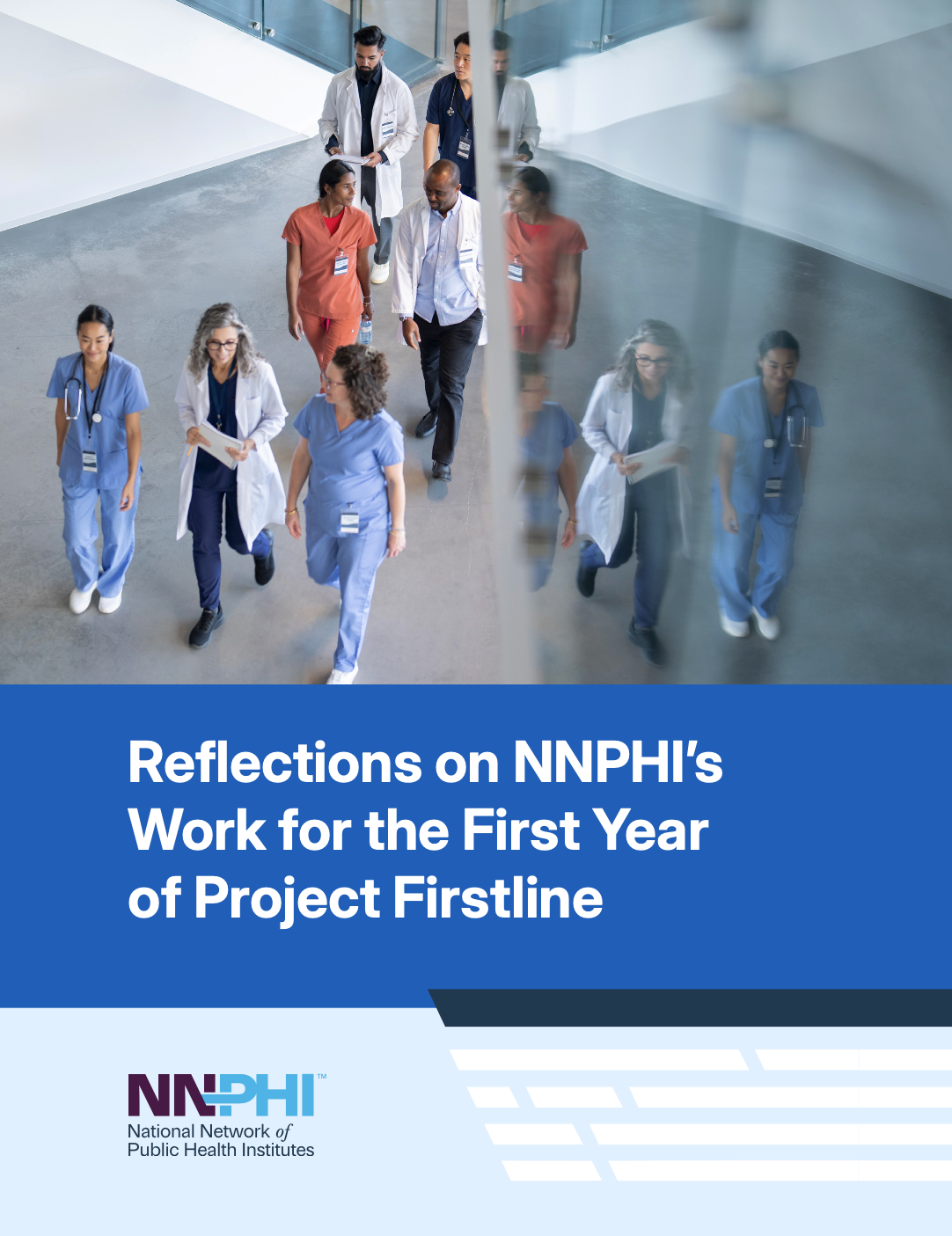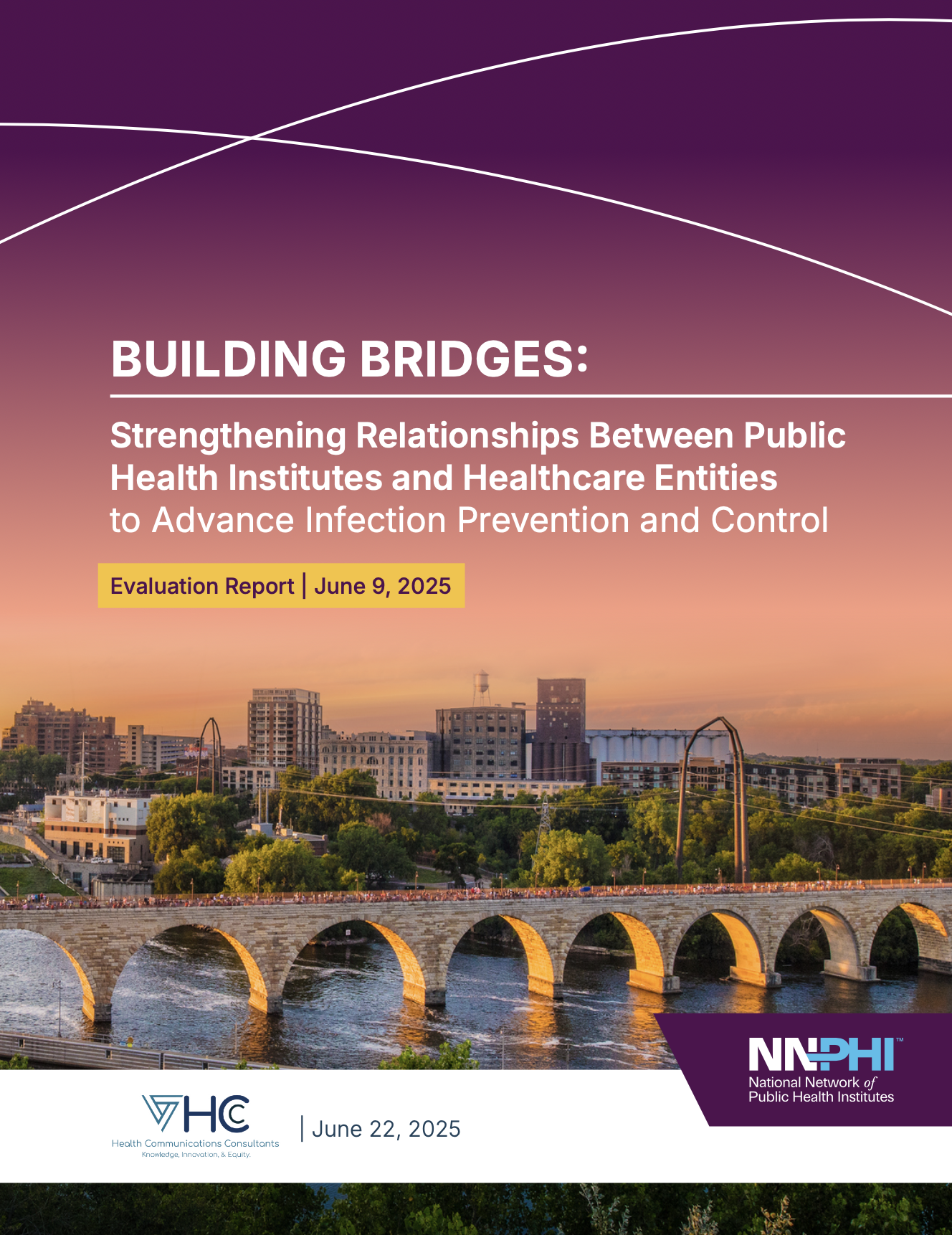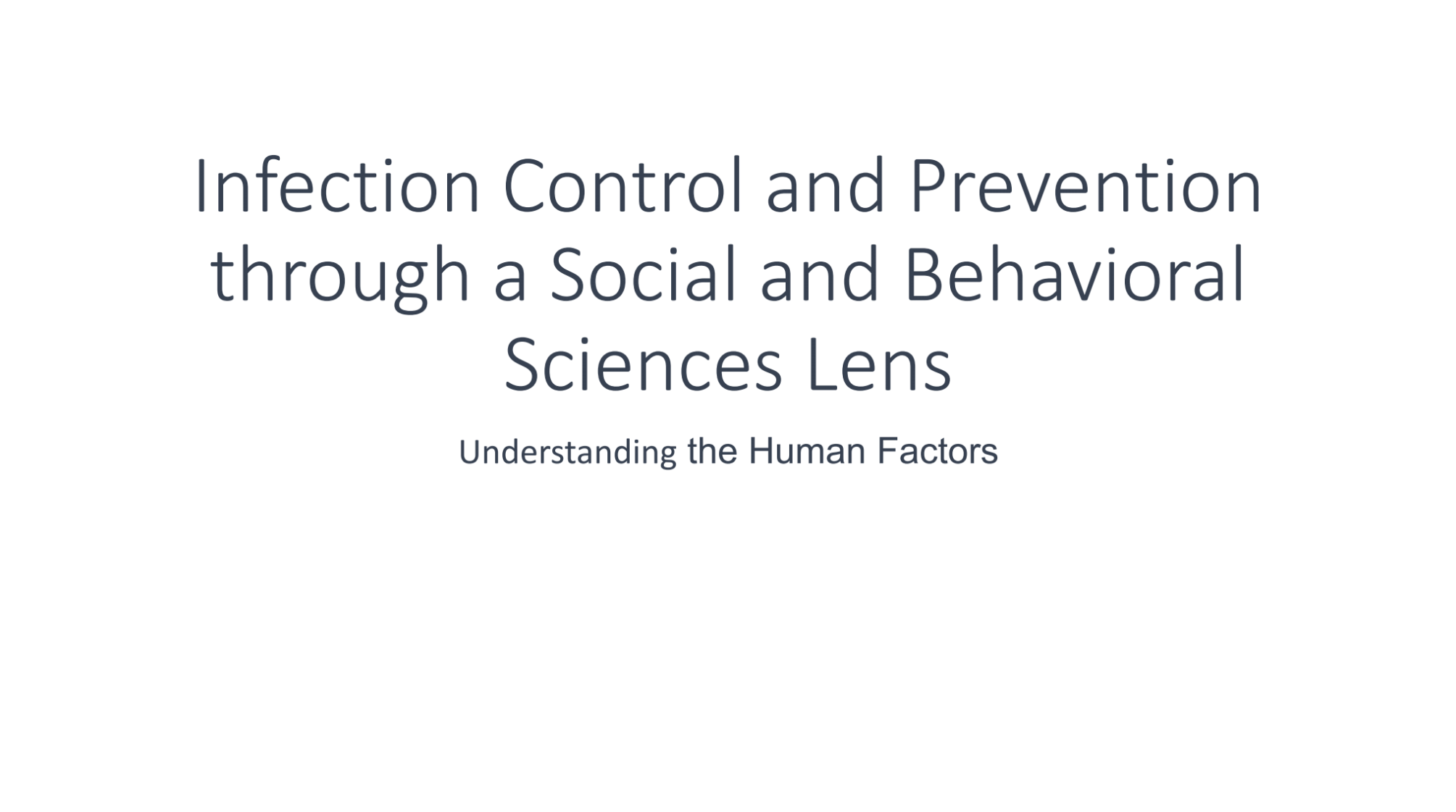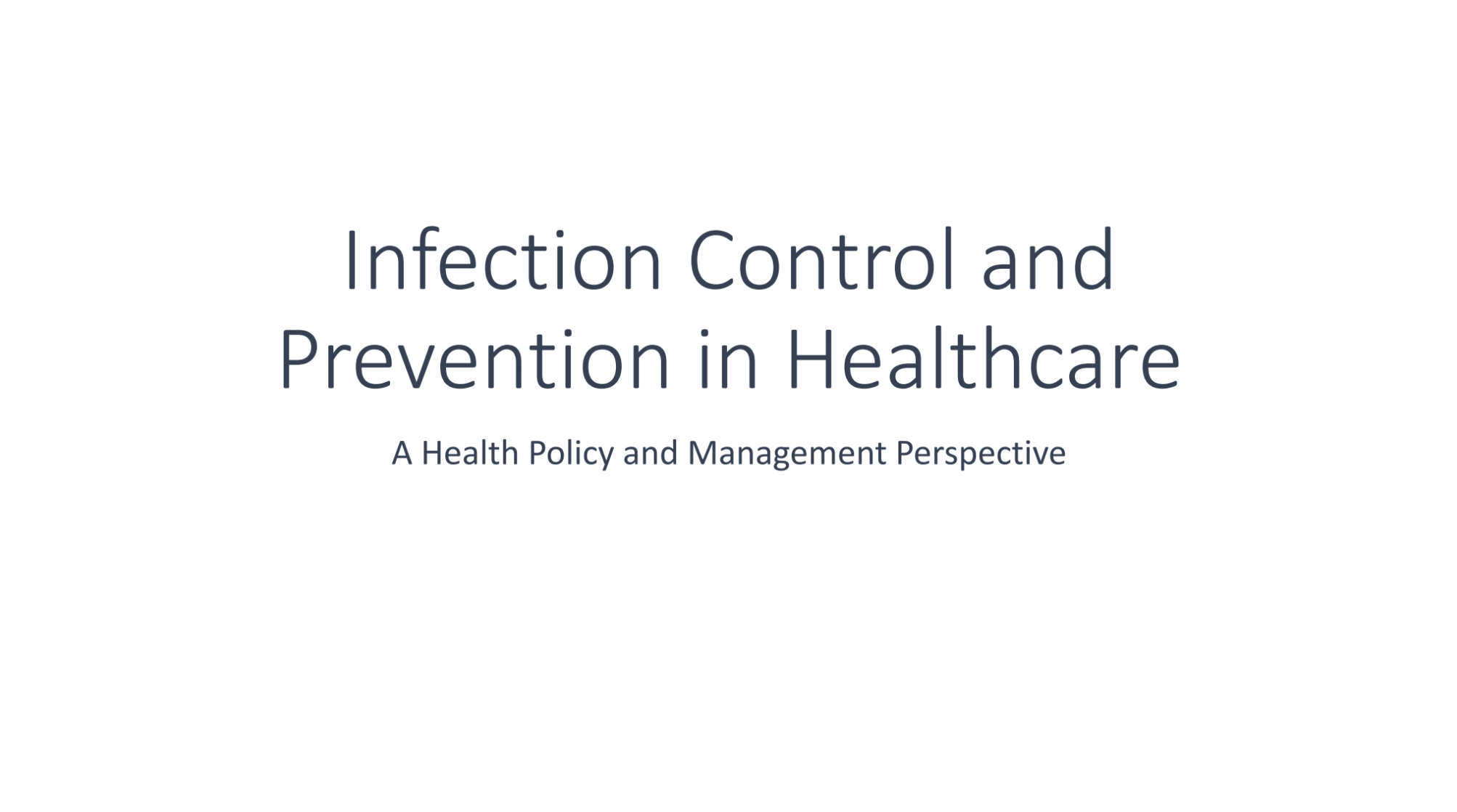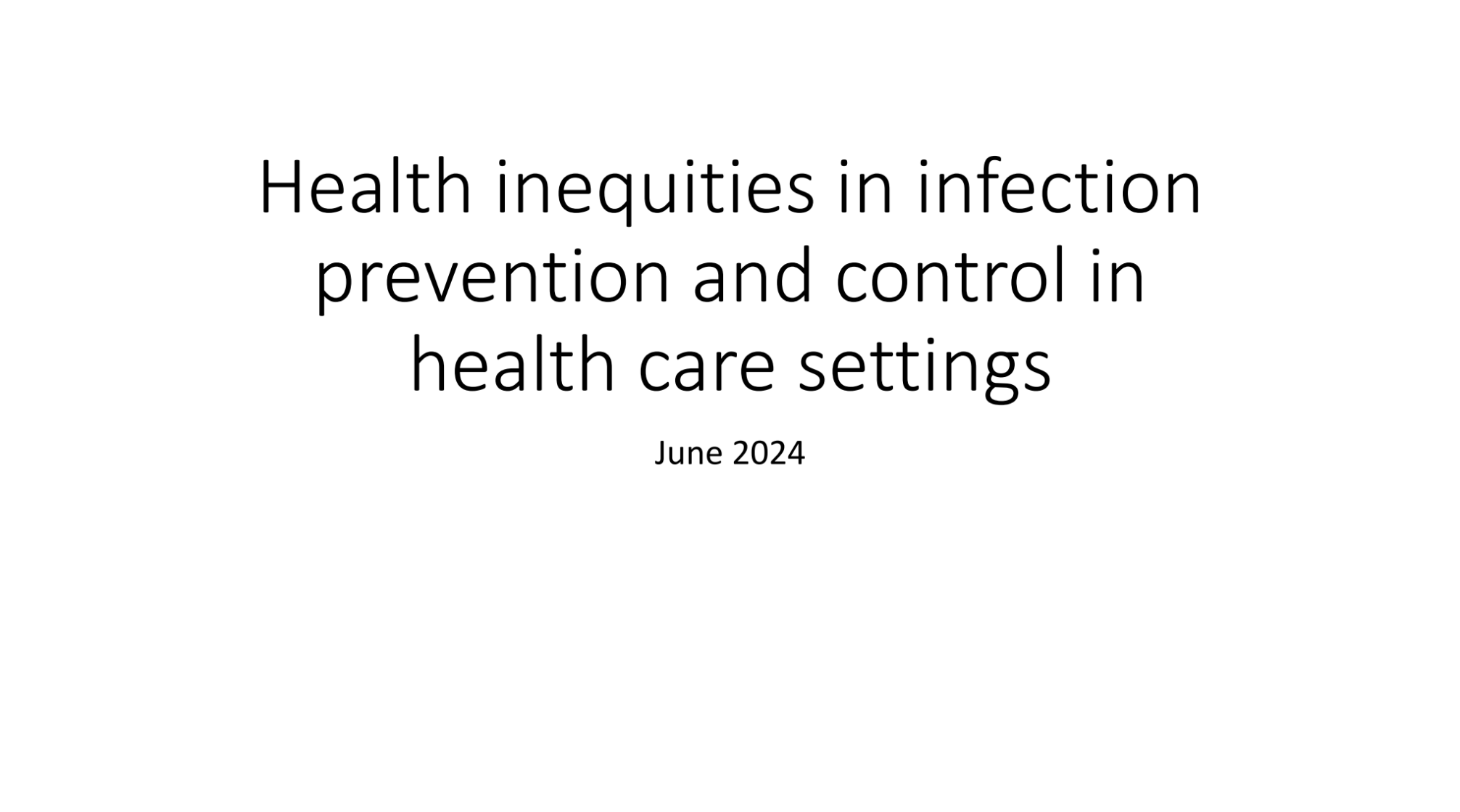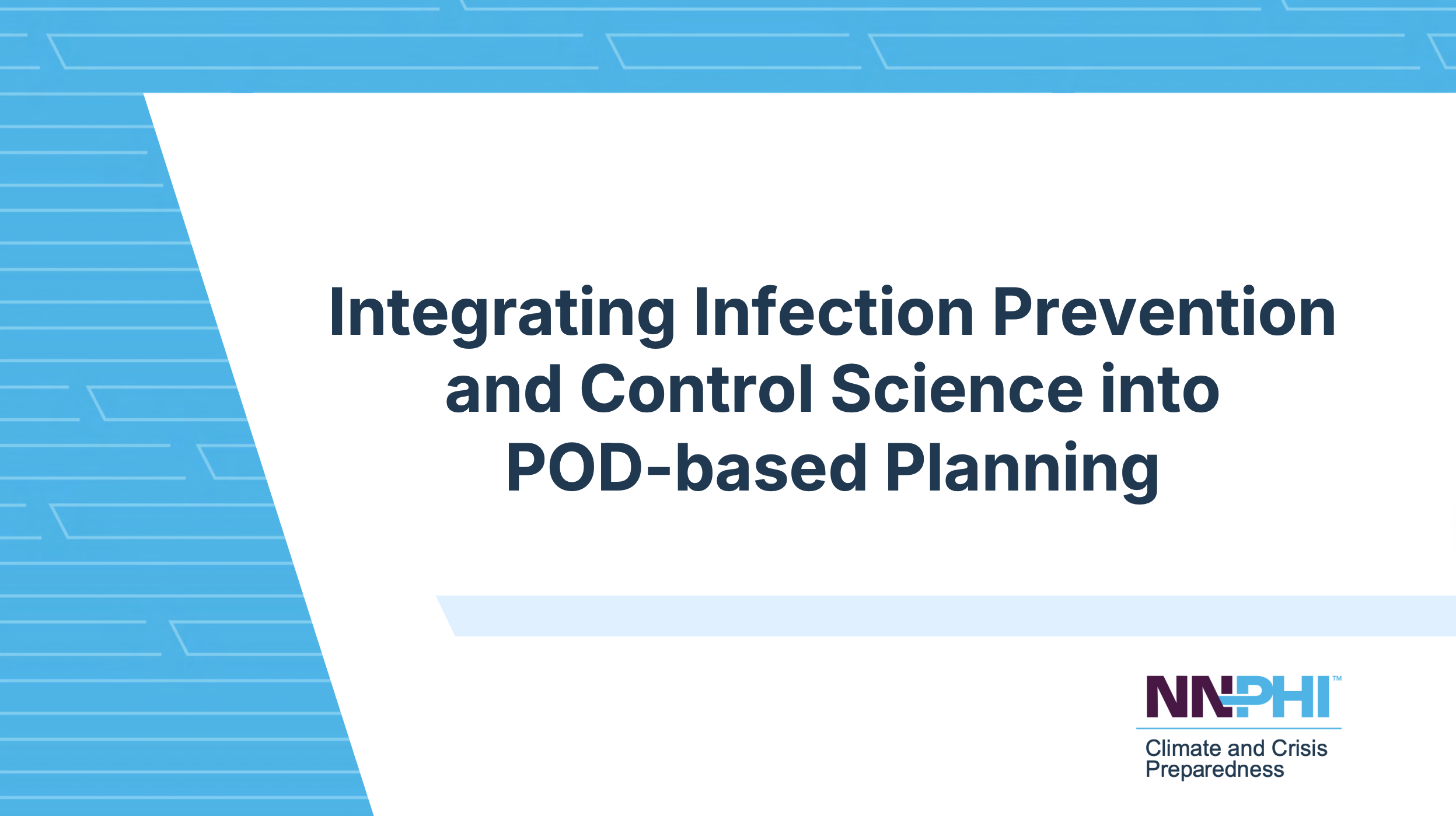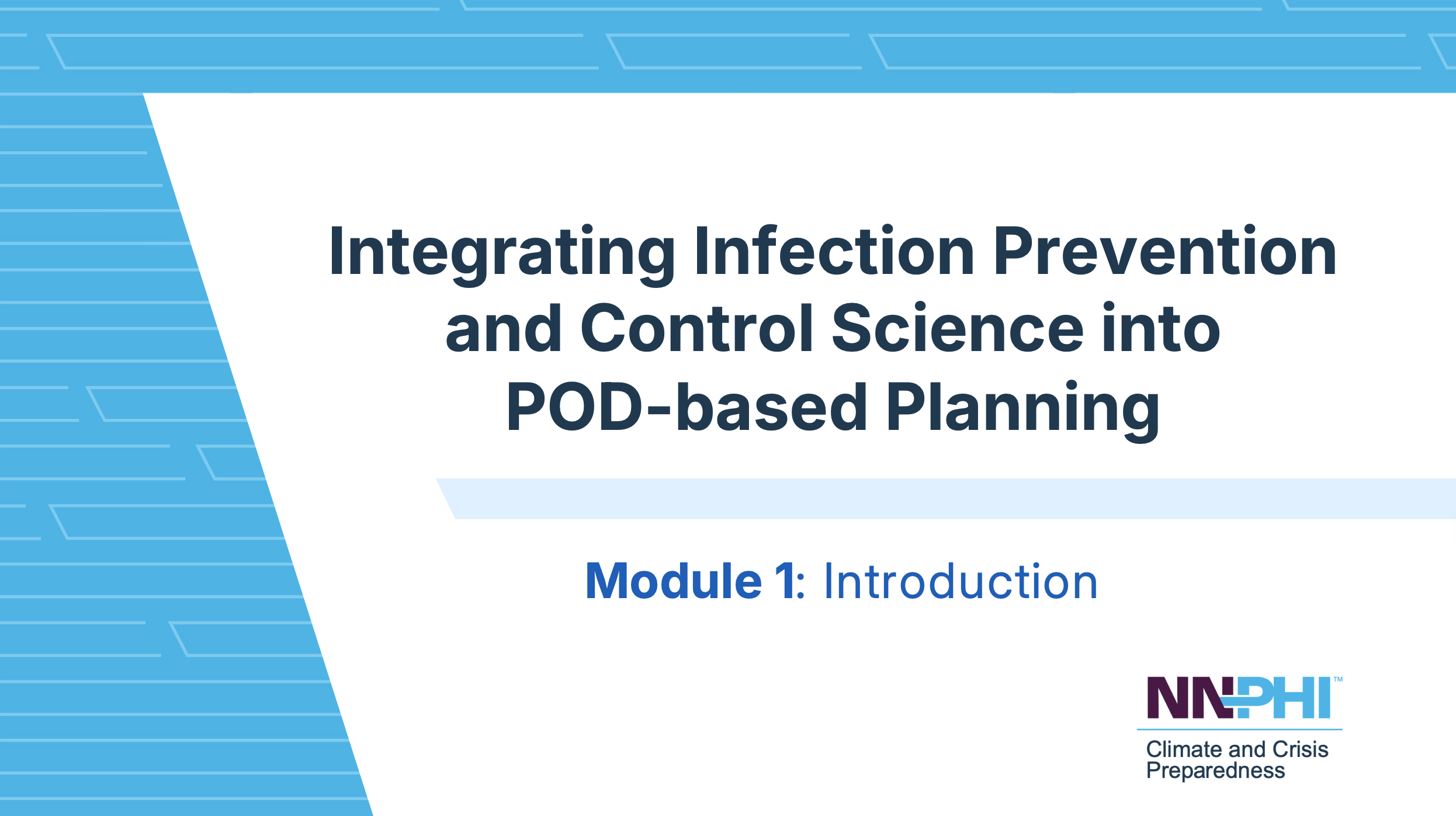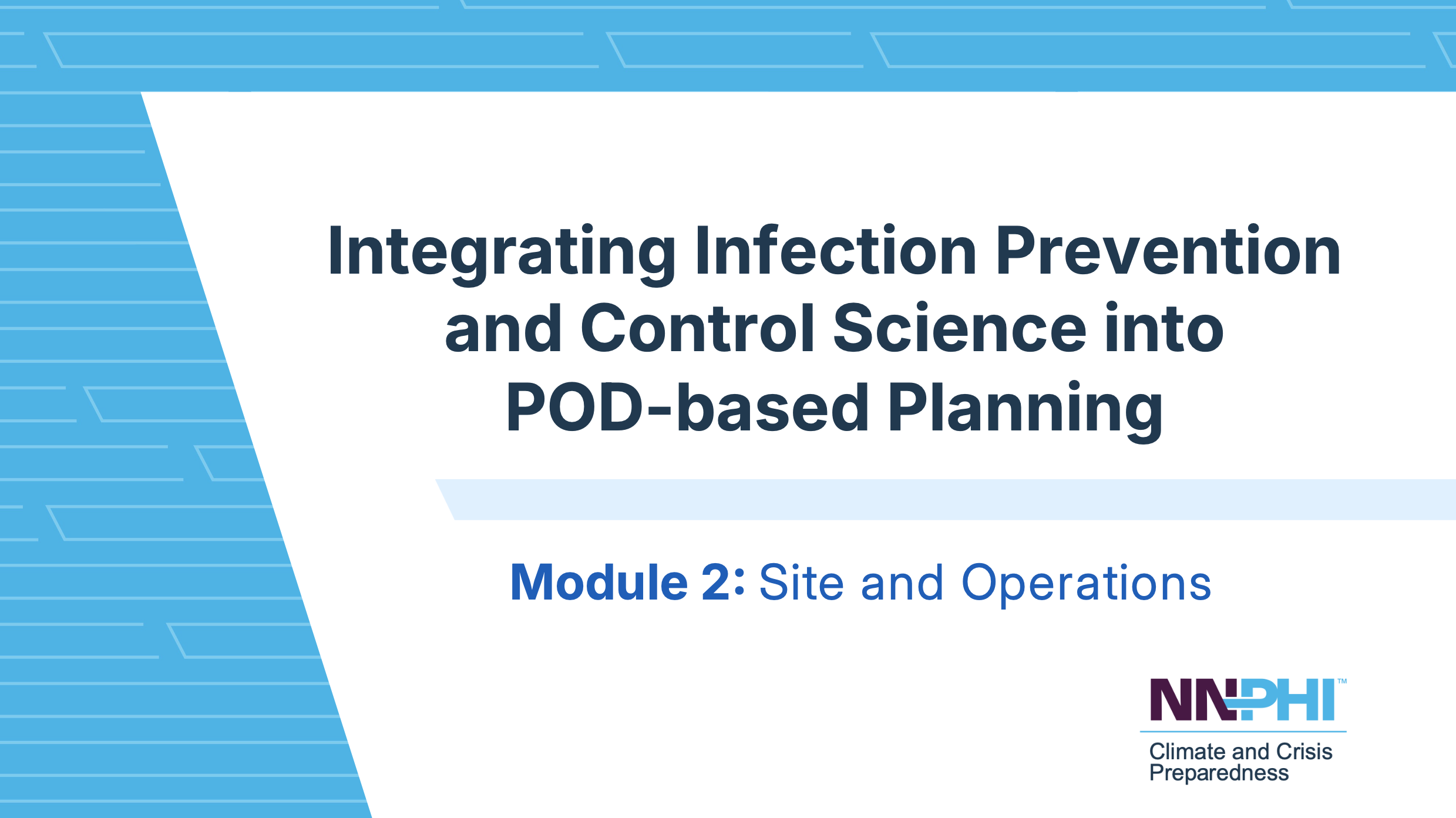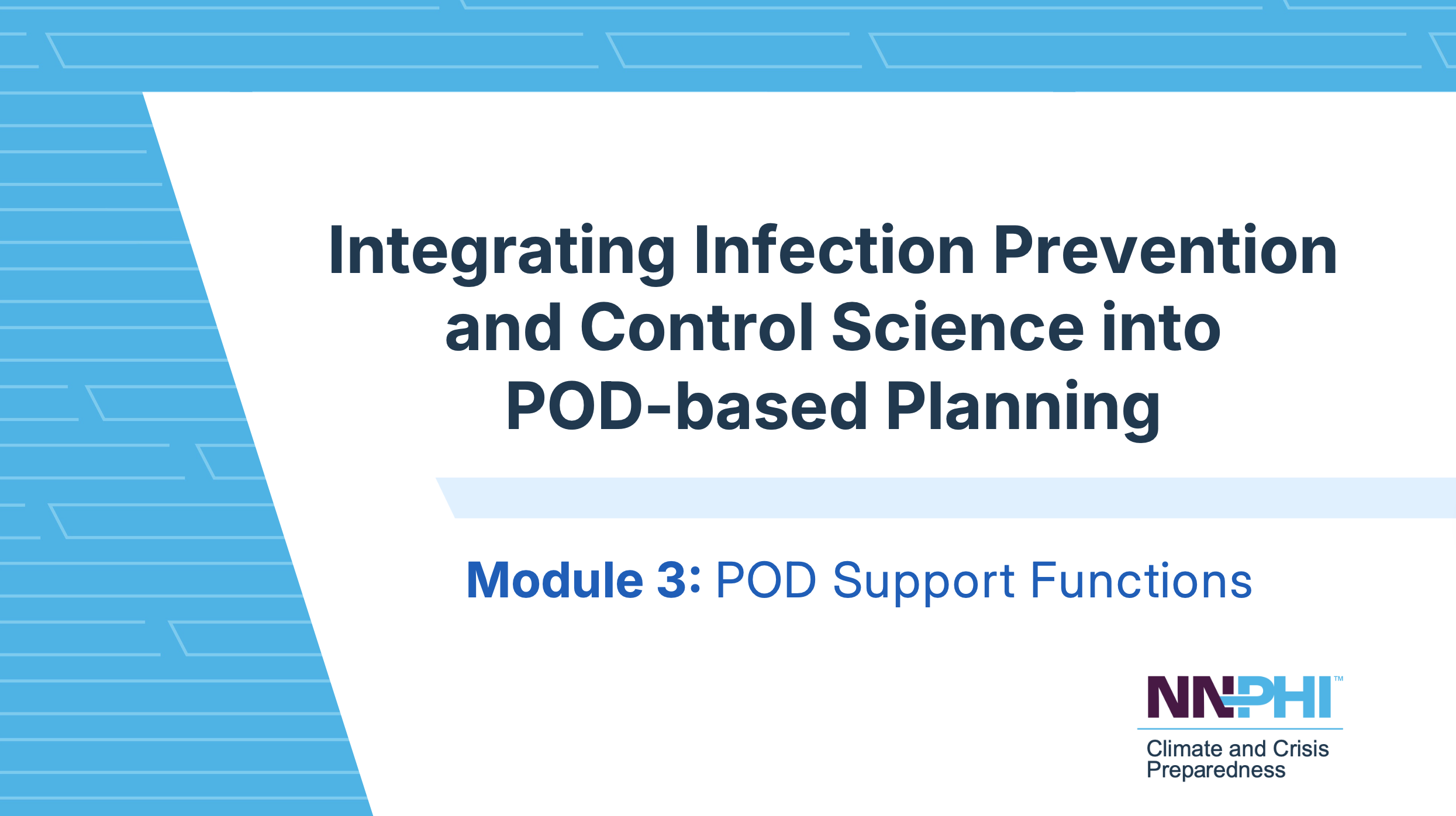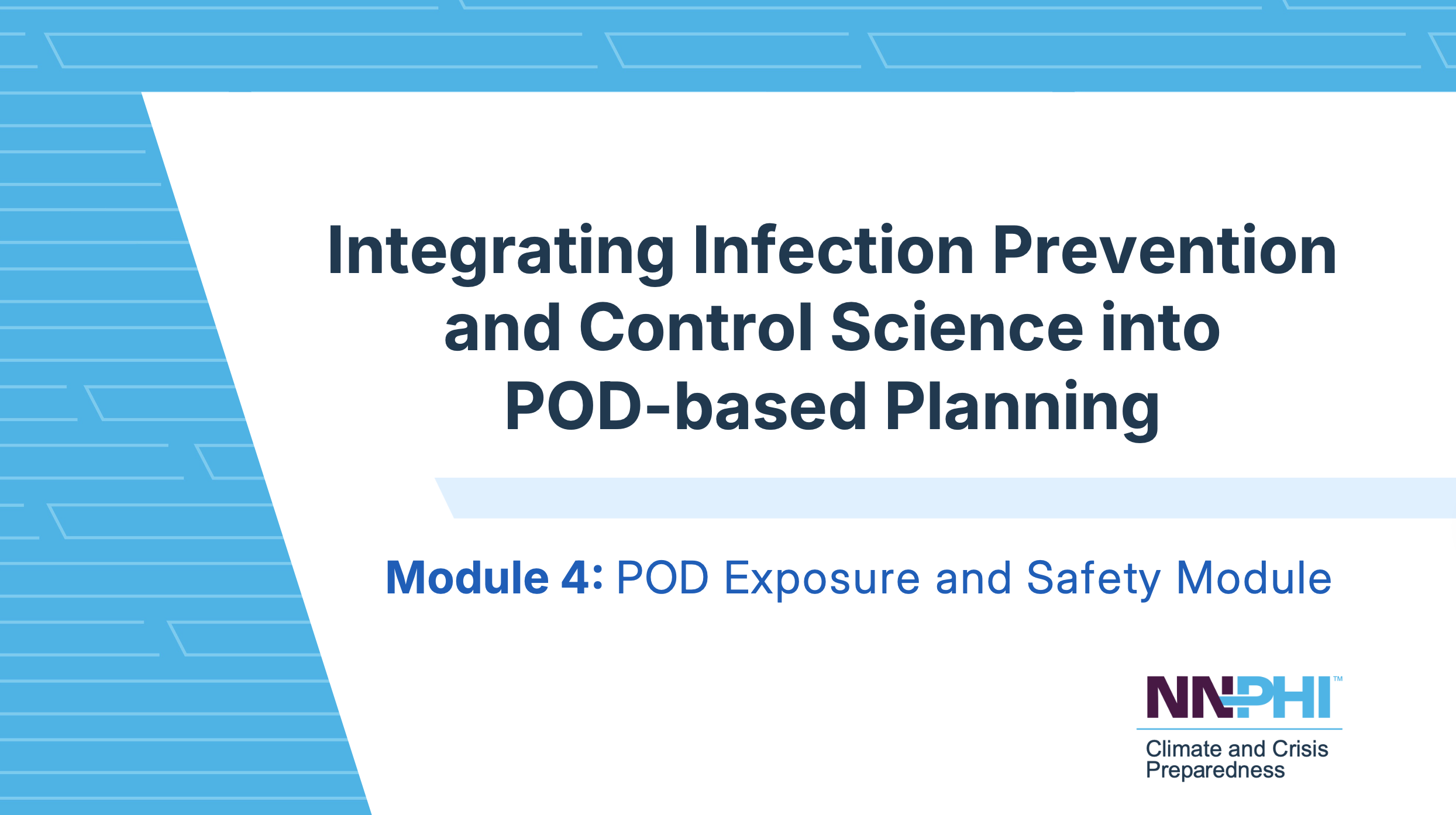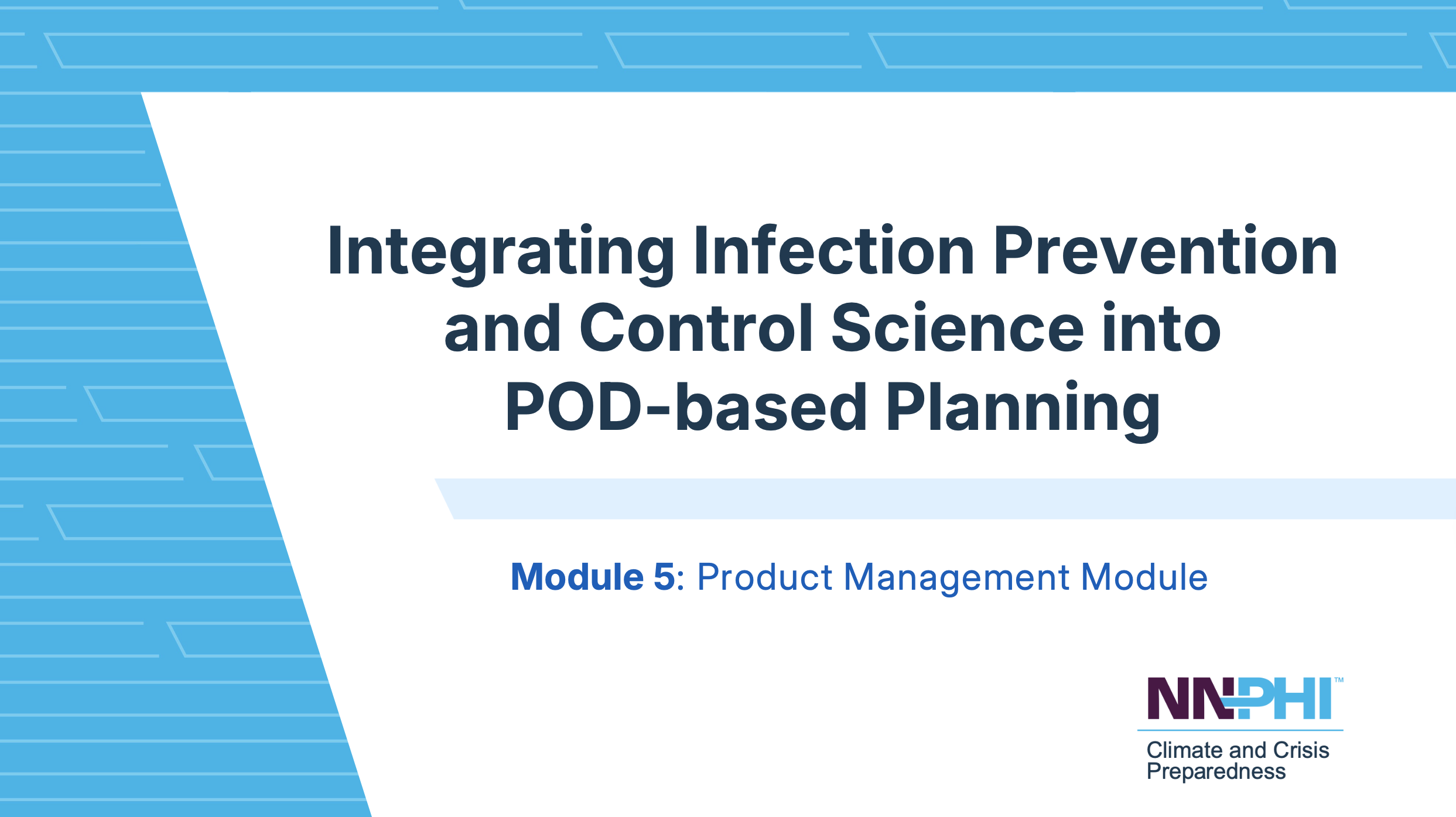Featured Resources

Why Should You Use Eye Protection?
Eye protection, such as goggles or face shields, is part of the personal protective equipment recommended to keep us safe from germs. We often focus on protecting our nose and mouth; however, our eyes are another way germs can get into our bodies. Scroll through this experience to find out why eye protection is essential to reduce your exposure to germs.
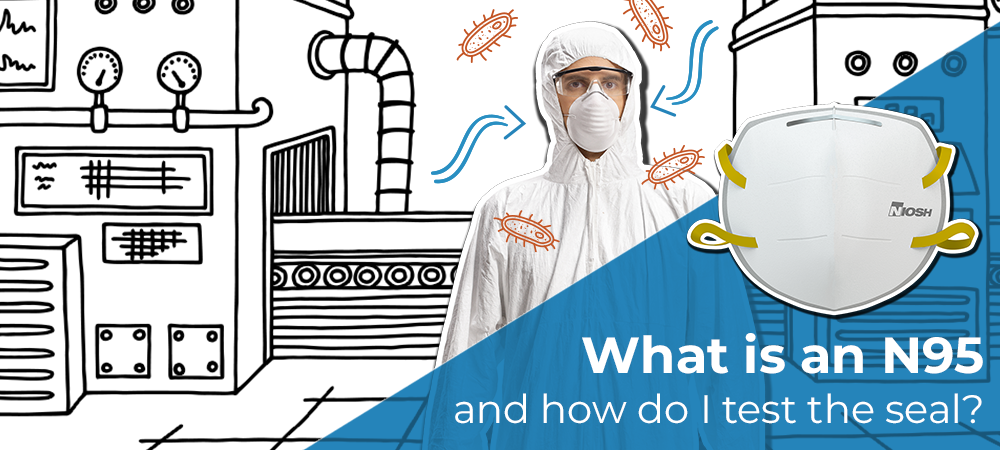
What is an N95 and How Do I Test the Seal?
N95s are certain respirators tested and proven to filter out at least 95% of very small air particles. While it is important to wear an N95 for respiratory protection, users should also check the seal of their N95 each time they put it on to ensure they only breathe in filtered air. Scroll through this experience to find out how to properly test an N95 seal to protect yourself and others from germs in the air.
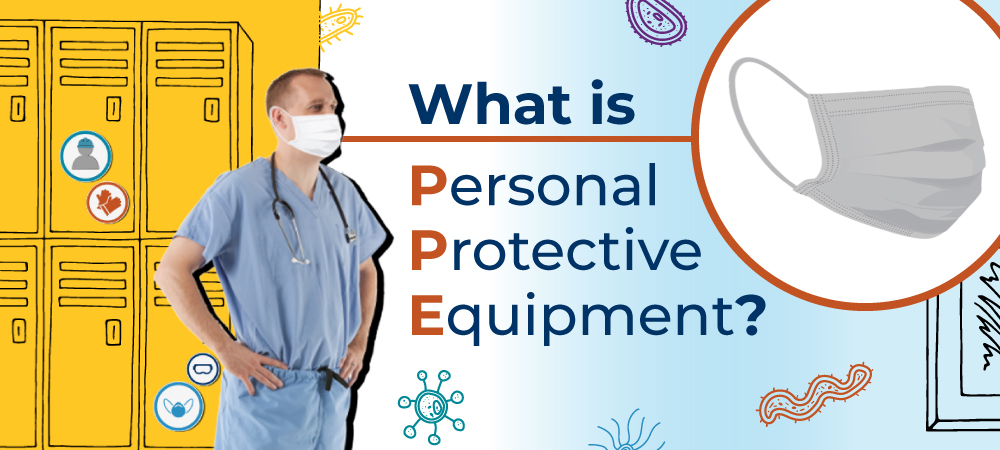
What is Personal Protective Equipment?
In healthcare, personal protective equipment (PPE) protects you from your most common problem—germs. Wearing PPE not only keeps you safe from germs, but also your patients and coworkers. Scroll through this experience to find out why PPE is important for infection control and how it works.
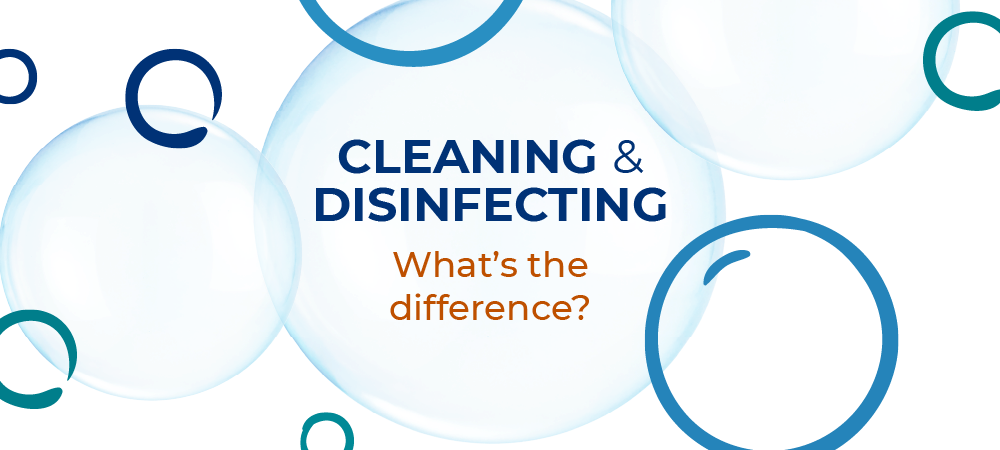
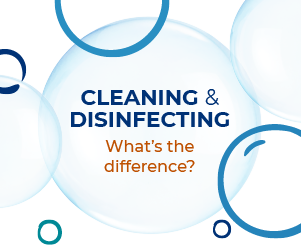
Cleaning & Disinfection: What’s the difference?
Cleaning and disinfection are both important ways to keep infections from spreading in healthcare, but they are not the same. Scroll through this experience to find out how appropriate cleaning and disinfection protects patients and staff.
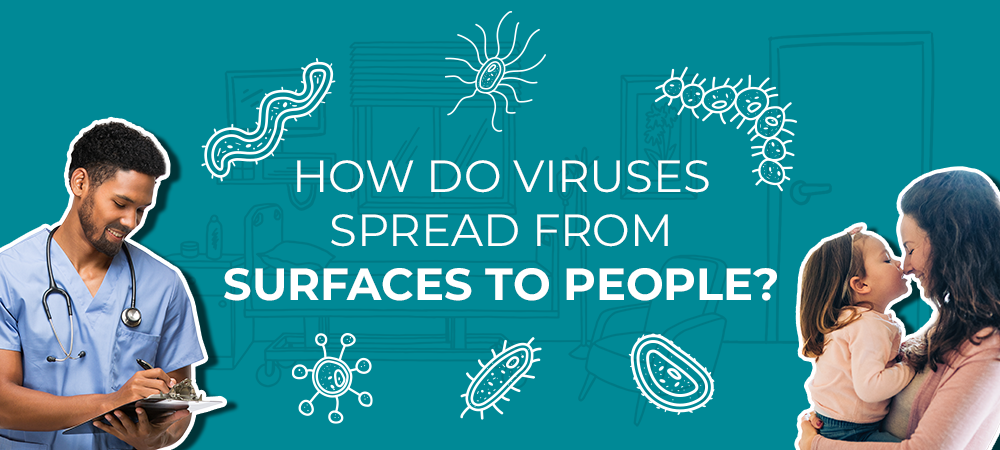
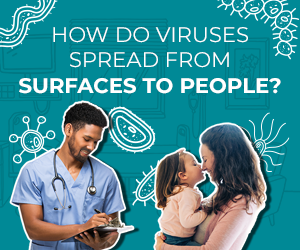
How Do Viruses Spread from Surfaces to People?
Viruses make us sick by spreading from person to person, but how does this happen? Scroll through this experience to find out how viruses travel through respiratory droplets and surface contact, and how infection control actions can stop the spread.
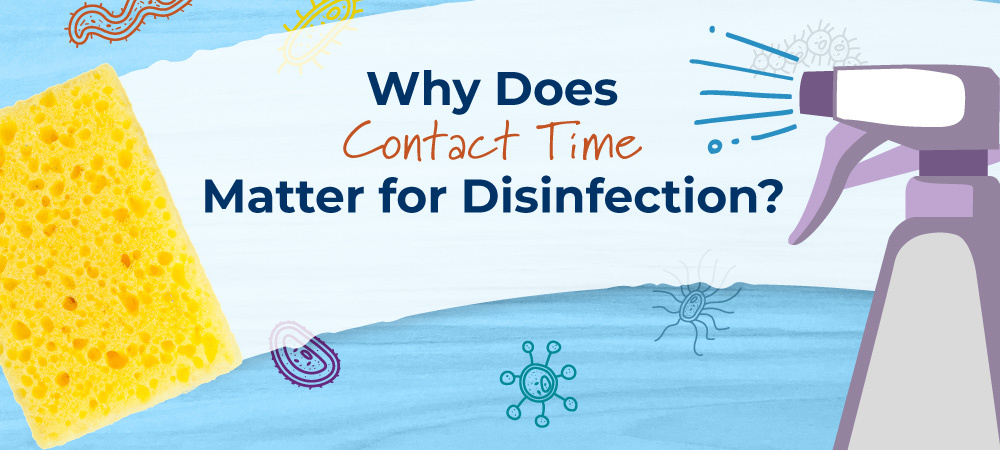
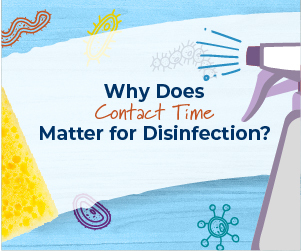
Why Does Contact Time Matter for Disinfection?
Contact time is important to determine how long a disinfectant should be on a surface before it is wiped away or disturbed. Scroll through this experience to find out how a disinfectant’s contact time makes a big difference in determining if germs spread or die.
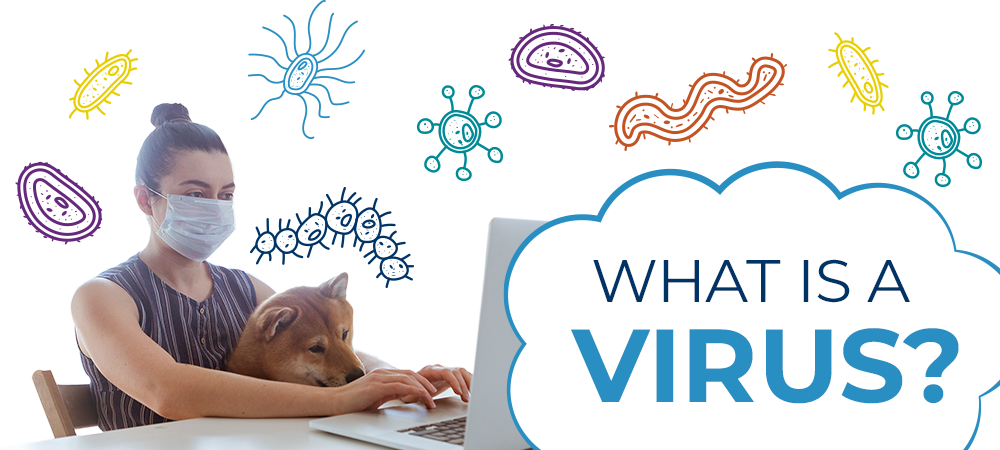
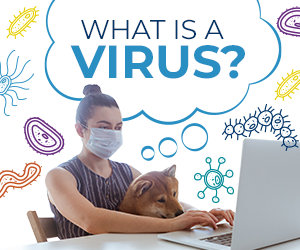
A virus is made up of three main parts: genes, proteins, and an envelope. Do you know the function of each part and how it impacts the spread of sickness and disease? Scroll through this experience to find out how a virus functions and how infection control actions can protect us.
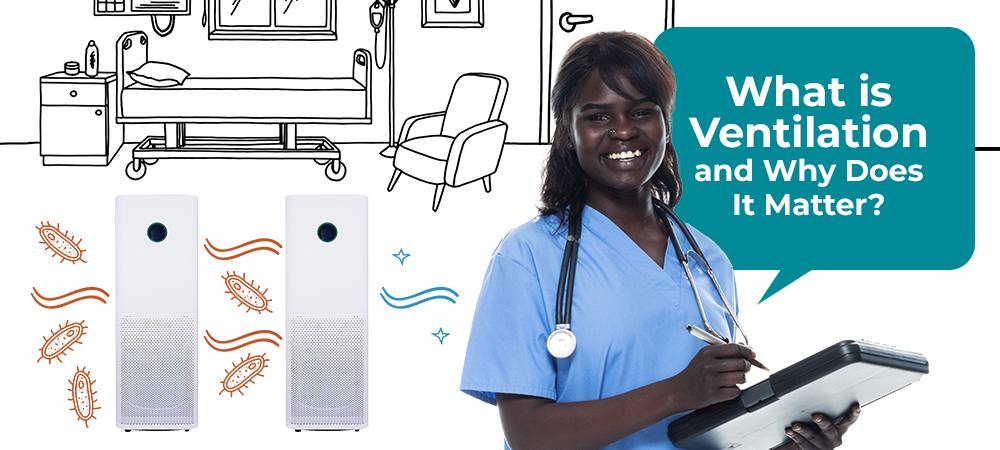
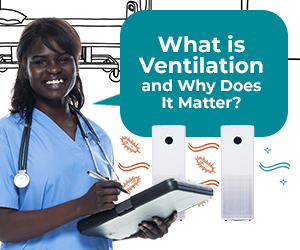
What is Ventilation and Why Does it Matter?
Ventilation is a key part of any healthcare infection control plan. Knowing why it matters, what role you play, and who at your facility is responsible for proper ventilation is critical. Scroll through this experience to find out how you can protect yourself and others from germs in the air.

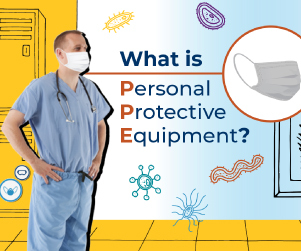
What is Personal Protective Equipment?
In healthcare, personal protective equipment (PPE) protects you from your most common problem—germs. Wearing PPE not only keeps you safe from germs, but also your patients and coworkers. Scroll through this experience to find out why PPE is important for infection control and how it works.

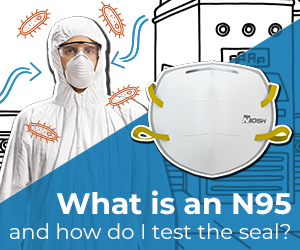
What is an N95 and How Do I Test the Seal?
N95s are certain respirators tested and proven to filter out at least 95% of very small air particles. While it is important to wear an N95 for respiratory protection, users should also check the seal of their N95 each time they put it on to ensure they only breathe in filtered air. Scroll through this experience to find out how to properly test an N95 seal to protect yourself and others from germs in the air.

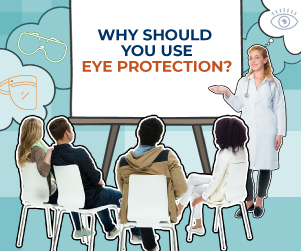
Why Should You Use Eye Protection?
Eye protection, such as goggles or face shields, is part of the personal protective equipment recommended to keep us safe from germs. We often focus on protecting our nose and mouth; however, our eyes are another way germs can get into our bodies. Scroll through this experience to find out why eye protection is essential to reduce your exposure to germs.
Building Clinical IPC Training in Public Health Curricula
In response to the growing need for infection prevention and control (IPC) education in public health, Health Communications Consultants, Inc. (HCC, Inc.) partnered with the National Networks of Public Health Institutes (NNPHI) to design, develop, and facilitate a two-part workshop series. Originally slated for in-person delivery at the 2025 ASPPH Annual Meeting, the workshop was adapted into two engaging virtual formats to accommodate travel restrictions affecting public health professionals nationwide.
Navigating the multifaceted world of public health, especially in infection prevention and control (IPC), requires more than just specialized technical knowledge. Public health workers, amidst a deluge of responsibilities, must not only be adept at understanding the biochemical and physiological factors that drive disease spread but also master complex interpersonal skills to ensure the effective promotion and preservation of public health. “The Essentials,” crafted in partnership with Health Communications Consultants, Inc. (HCC, Inc.) and presented by NNPHI, unveils a comprehensive analysis of the essential skills and training needs that empower professionals to flourish and decisively act in the arenas of Infection Prevention and Control (IPC) and Antimicrobial Resistance (AR).
Building Capacity Of The Public Health Workforce
This Feasibility Study explores opportunities to integrate Infection Prevention and Control (IPC) education into Master of Public Health (MPH) programs, addressing critical gaps in workforce preparedness. Conducted by the University of South Florida (USF) College of Public Health and supported by NNPHI and CDC’s Project Firstline, the study identifies natural inclusion points for IPC content within existing MPH curricula, evaluates workforce trends, and highlights the value of diverse educational backgrounds and experiences in IPC roles. The report proposes an innovative competency framework combining public health and infection prevention competencies to strengthen IPC training pathways and better align public health education with emerging workforce needs.
Building MPH Curriculum to Support Infection Prevention
Building a strong infection prevention pipeline requires collaboration between academic institutions and healthcare settings. This report, developed by Indiana University’s Fairbanks School of Public Health with support from NNPHI and CDC’s Project Firstline, outlines a clear roadmap for integrating infection prevention and control (IPC) into Master of Public Health (MPH) programs. It highlights innovative approaches, including virtual reality training modules with immersive healthcare scenarios, to enhance hands-on learning and prepare graduates for vital IPC roles. The report also offers actionable recommendations to integrate IPC into curricula, strengthen partnerships with healthcare facilities, address workforce gaps, and advance equity in healthcare education and outcomes.
Assessing Public Health Nurse Training Needs for Infection Prevention and Control
Infection preventionist (IPs) typically come from a nursing background. However, projected shortages in the field could lead to hiring changes for IPs. The Assessing Public Health Nurse Training Needs for Infection Prevention and Control report, developed by Cardea in collaboration with NNPHI and supported by CDC’s Project Firstline, highlights the critical role of public health nurses (PHNs) in infection prevention and control (IPC). Through comprehensive surveys, interviews, and a literature review, the report identifies key training needs, essential skills, and preferred learning modalities for PHNs. Findings emphasize the importance of hybrid training approaches, regular follow-up sessions, and accessible, centralized resources to strengthen the capacity of PHNs in advancing IPC practices across diverse healthcare and community settings.
Understanding IPC Curricula at HBCUs
Infection prevention and control (IPC) curriculum is a critical component in public health education. This report examines the state of IPC education at historically Black colleges and universities (HBCUs), revealing significant gaps in curricula and the broader implications for health equity. The findings underscore the need for standardized IPC education to better equip public health students and professionals in addressing infection prevention and control.
Infection Prevention and Control Education and Training
The field of infection prevention is evolving rapidly. This report, developed by NNPHI and APIC, explores the current landscape of IPC education in academic programs and workforce training. Through an environmental scan and stakeholder interviews, it identifies gaps in IPC curricula, the growing need for infection preventionists across healthcare settings, and key recommendations for building a standardized academic pathway to strengthen the IPC workforce.
Reflections on NNPHI’s Work for the First Year of Project Firstline
Project Firstline (PFL) initiatives represent a cornerstone of NNPHI’s workforce development strategy. This report examines Year 1 activities and their measurable impact on public health workforce capabilities, revealing both successes and opportunities for enhancement. The findings underscore the strategic alignment between PFL programming and NNPHI’s broader objectives, while providing actionable recommendations to strengthen implementation as we advance into Year 2.
Advancing Infection Prevention
The National Network of Public Health Institutes (NNPHI) launched a four-part learning series titled Advancing Infection Prevention & Control: A Public Health Approach to Bridging Gaps. Grounded in foundational documents developed during the initial years of the Project Firstline grant, the series aimed to deepen understanding and strengthen the application of infection control strategies across both public health and healthcare settings.
Health Communications Consultants, Inc. (HCC, Inc.), in partnership with NNPHI and with funding from the CDC’s Project Firstline, delivered the interactive pre-conference workshop Building Bridges: Strengthening Relationships Between Public Health Institutes and Healthcare Entities to Advance Infection Prevention and Control (IPC). The workshop aimed to enhance workforce capacity in IPC, explore PHI strengths, and foster actionable strategies for healthcare and community-based IPC and healthcare-associated infection (HAI) education.
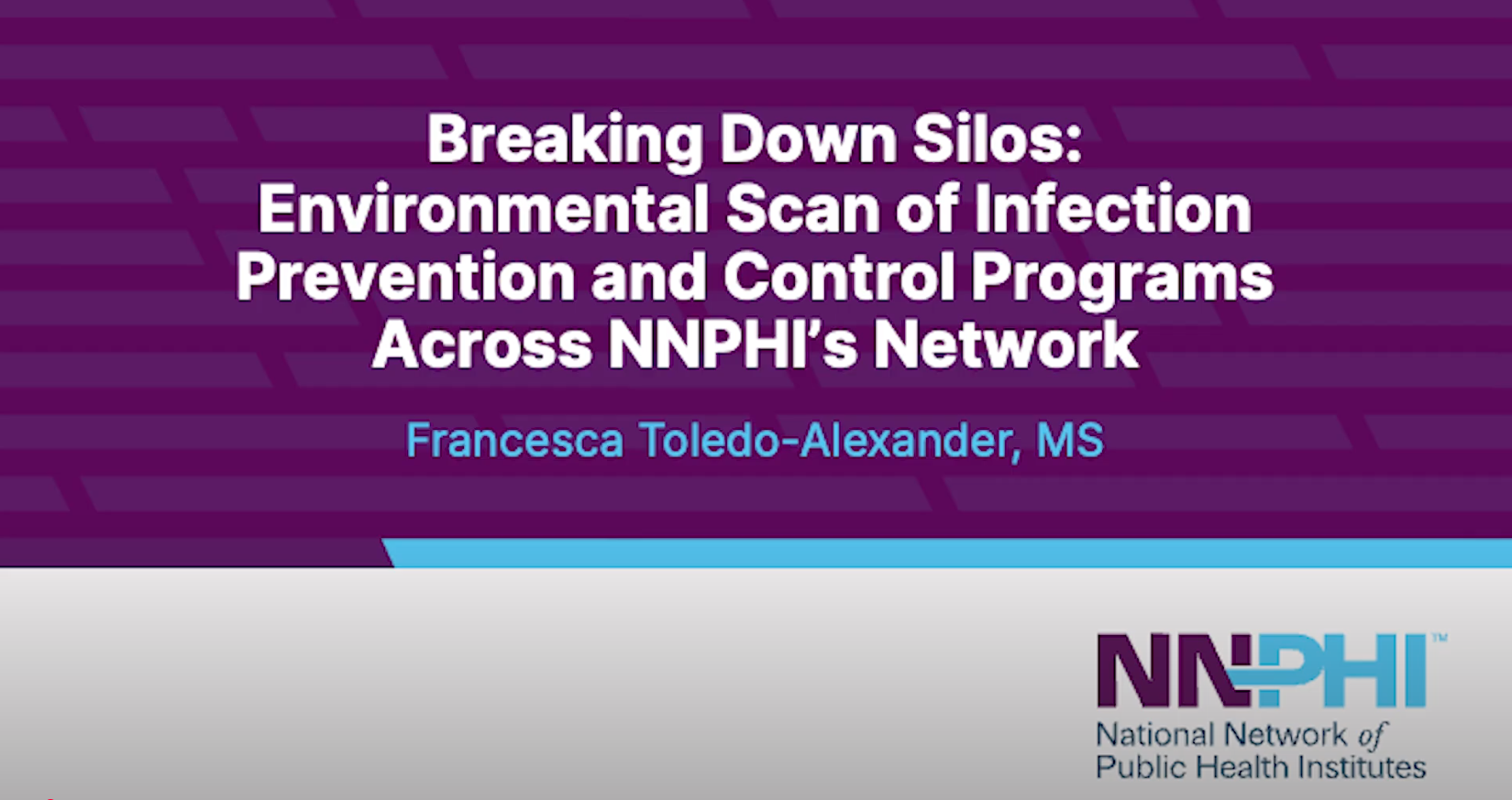
Breaking Down Silos: Environmental Scan of IPC Programs Across NNPHI’s Network
Francesca Toledo-Alexander, MS, senior program manager at NNPHI, presented “Breaking Down Silos: Environmental Scan of Infection Prevention and Control Programs Across NNPHI’s Network” at the 2025 NNPHI Annual Conference, exploring how public health institutes can bridge gaps between sectors and develop actionable strategies for equitable IPC practices.
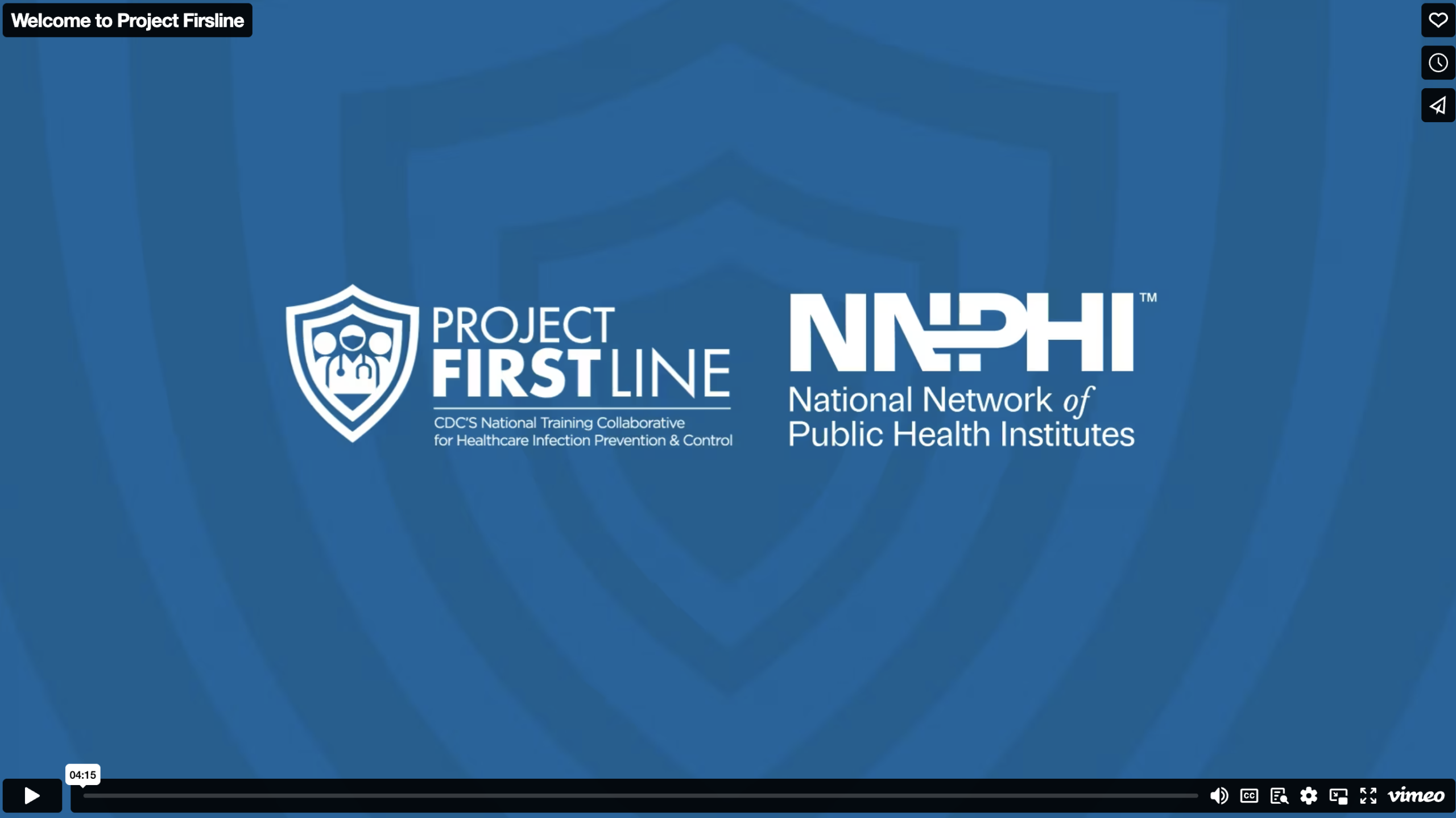
Project Firstline Building Bridges Pre-Conference Workshop
Public health institutions’ strengths in education, technical assistance, and convening roles across public health and healthcare sectors make them ideal partners to support infection prevention and control efforts in hospitals and health systems.

This video covers hospital-acquired infections (HAIs) and their impact, including the emergence of antibiotic resistance and airborne transmission. Understanding these infections is key to implementing effective prevention strategies. Together, healthcare teams can protect patient health and reduce HAIs.

This video emphasizes the critical role of cleaning and disinfection in preventing hospital-acquired infections. Environmental services staff are experts in maintaining healthcare safety, but every team member plays a vital role in ensuring clean and disinfected workspaces. By following protocols, staying proactive, and contributing to a safe environment, healthcare workers help protect patients, staff, and families.

This video highlights the importance of hand hygiene in preventing the spread of infections, especially in hospital settings. Key practices include wearing gloves when handling blood or bodily fluids and cleaning hands thoroughly after glove removal. By fostering a team-focused culture of safety, healthcare workers can protect both patients and themselves, creating a healthier environment for all.
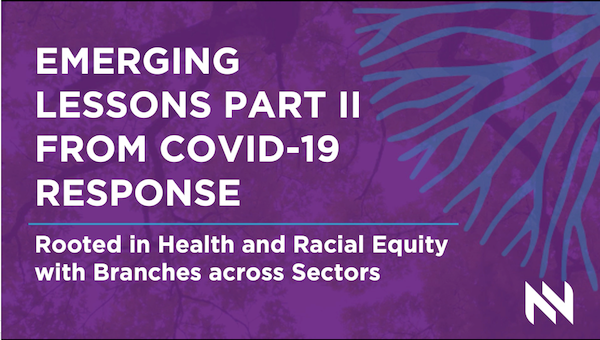
Emerging Lessons from the COVID-19 Response
This webinar highlights lessons learned from the Public Health Institute of Metropolitan Chicago, words from NNPHI CEO Dr. Vincent Lafronza, a keynote speech from Grantmakers In Health CEO Dr. Cara James on philanthropy and equitable COVID-19 responses, the Louisiana Public Health Institute’s health equity efforts, and spoken word from Alana Jackson.
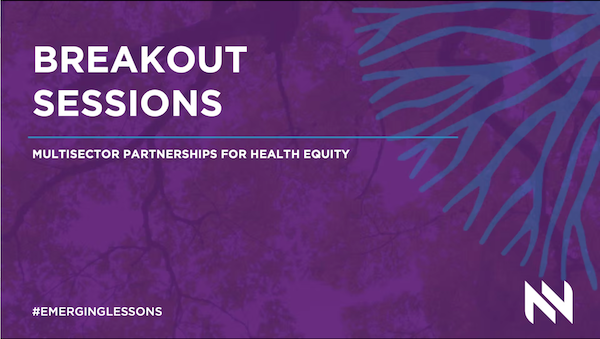
Multisector Partnerships for Health Equity
This breakout session highlights the work of Congresswoman Barbara Lee of California and Dr. Marcus Hunter, a UCLA Professor, with Truth, Racial Healing, and Transformation. This national movement seeks to bring about sustainable change to address the effects of racism.

A Blueprint for 2021 and Beyond
This breakout session highlights the Colorado Health Institute and lessons learned from Colorado’s COVID-19 response. Components also feature attendees sharing lessons learned and an interactive case study on equitable vaccine distribution.
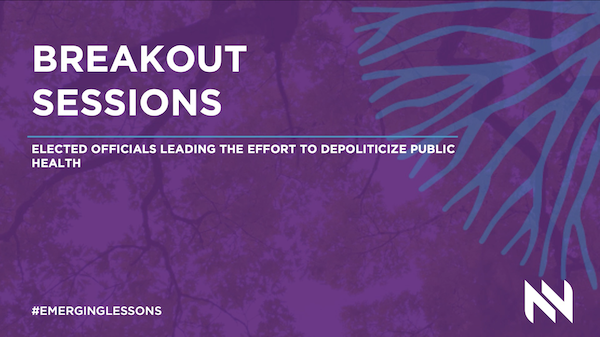
Elected Officials Leading The Effort To Depoliticize Public Health
This breakout session highlights Delegate Jheanelle Wilkins of Maryland, Supervisor Lena Fowler of Arizona, and Councilmember Helena Moreno of Louisiana. The panel discusses their unique equitable approaches to guide state response, recovery, and rebuilding during COVID-19.
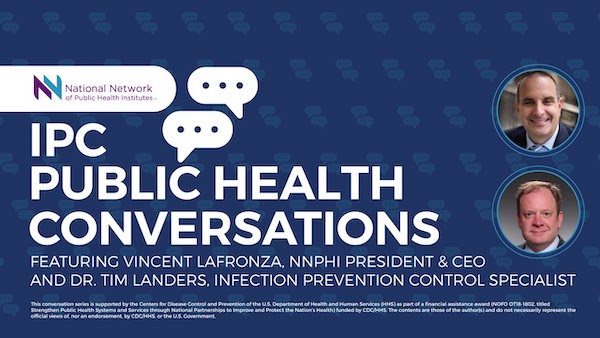
IPC Public Health Conversation with Dr. Timothy Landers
This conversation features Dr. Timothy Landers, a Nurse Scientist and Epidemiologist at Nationwide Children’s Hospital. He discusses why IPC is important during the pandemic, his role in Project Firstline, and how the project supports health workers and public health professionals.
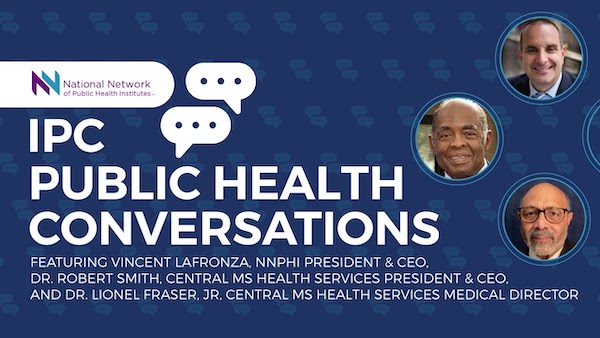
IPC Public Health Conversation with Dr. Robert Smith and Dr. Lionel Fraser
This conversation features Dr. Robert Smith, the CEO of Central MS Health Services and Dr. Lionel Fraser, Jr, the Central MS Health Services Medical Director. They discuss their work in community health centers (a model rooted in the Civil Rights Era), their unique IPC challenges, and the need for equitable vaccine distribution and access to care.
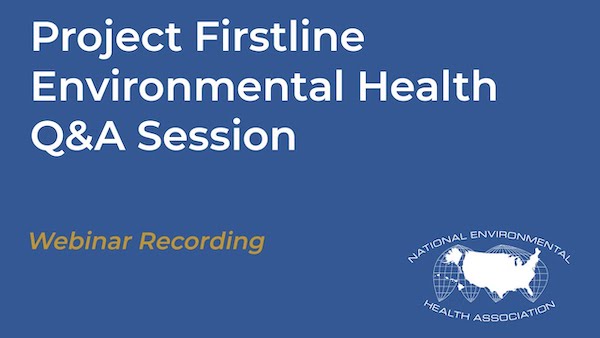
Project Firstline Environmental Health Q&A Session with Gina Bare, RN and Dr. Timothy Landers
This Q&A session features Gina Bare, RN, the Associate Director of Program and Partnership Development for the National Environmental Health Association and Dr. Timothy Landers, a Nurse Scientist and Epidemiologist at Nationwide Children’s Hospital. The discuss the interplay of infection control and environmental health, why collaboration matters, and important COVID-19 infection control guidelines for environmental health professionals.
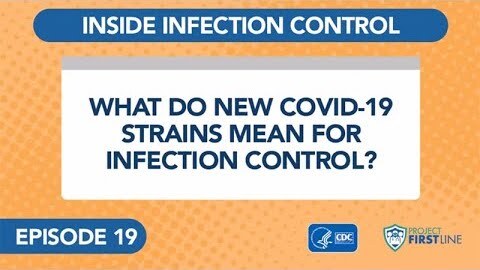
What Do New COVID-19 Strains Mean for Infection Control?
Dr. Abby explains how virus mutations happen, why new virus strains make infection control actions more important than ever, and the tools you need to help keep you safe from any strain of COVID-19 in this episode of Inside Infection Control.
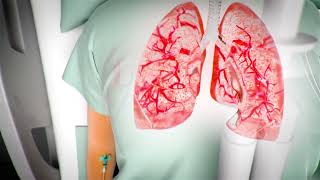
Understanding HAIs: Preventing Healthcare-Associated Infections | NNPHI’s Project Firstline
Healthcare-Associated Infections (HAIs) pose a serious risk in medical settings. This video explores what HAIs are, how they spread, and the critical role of infection prevention measures.

Cleaning & Sanitizing: Breaking the Chain of Infection | NNPHI’s Project Firstline
Cleaning and sanitizing are essential steps in reducing harmful germs. Learn the difference between cleaning and disinfecting, and how to maintain a safe and healthy environment.
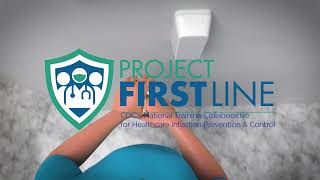
Clean Hands: The First Line of Defense | NNPHI’s Project Firstline
Proper hand hygiene is one of the most effective ways to prevent infections. This video highlights key handwashing techniques and the importance of clean hands in healthcare settings.
Presentations
Toolkits
Infection Control and Prevention through Social and Behavioral Science Lens
Social and cultural forces influence almost every aspect of disease transmission, including public health and healthcare’s ability to respond. Examining infection prevention and control through a social and behavioral sciences lens offers valuable insights into understanding and addressing the complexities of human behavior and social dynamics in the context of healthcare-associated infections.
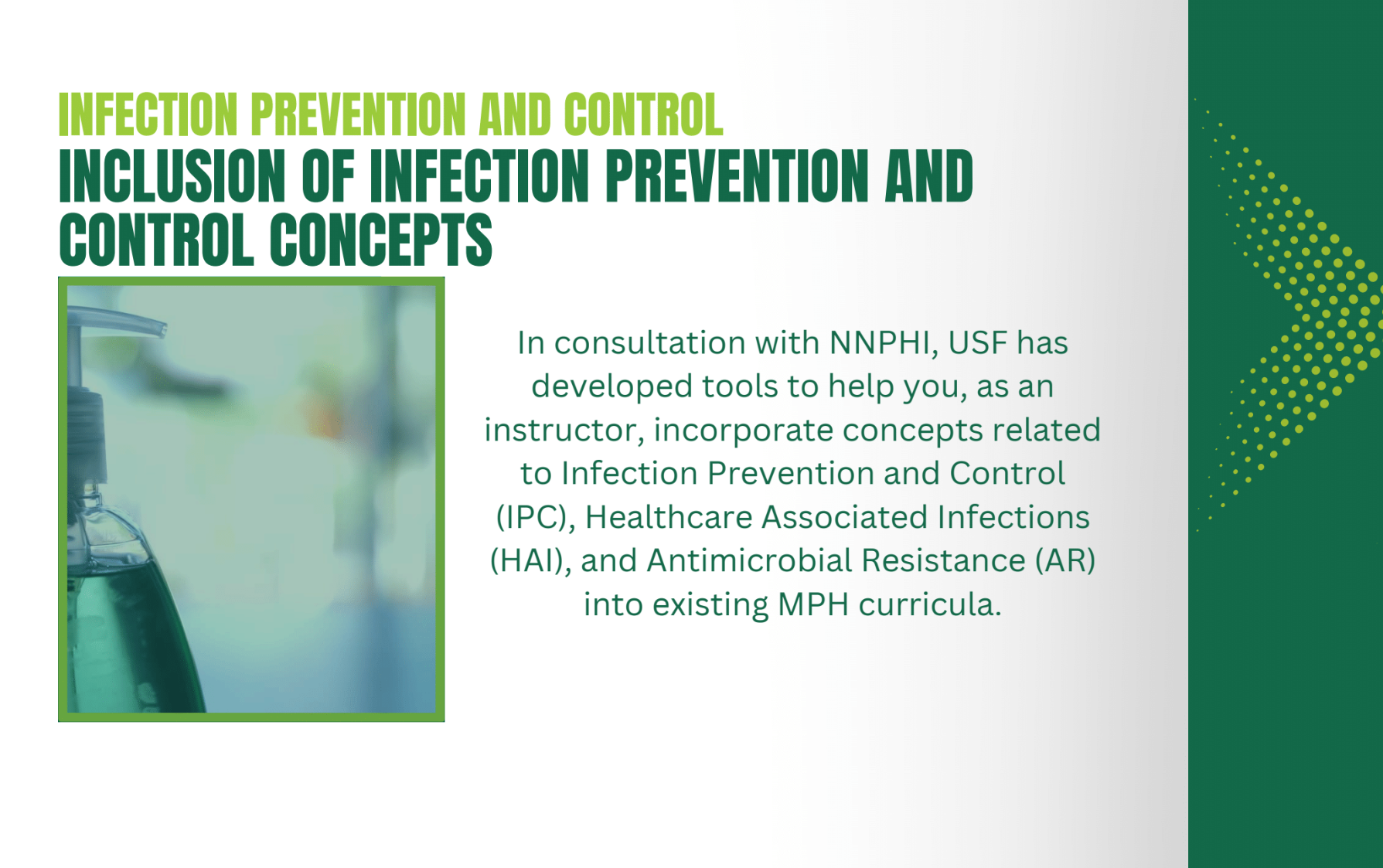
Toolkit 1 – Infection Prevention and Control: Inclusion of Infection Prevention and Control Concepts
In consultation with NNPHI, USF has developed tools to help you, as an instructor, incorporate concepts related to Infection Prevention and Control (IPC), Healthcare Associated Infections (HAI), and Antimicrobial Resistance (AR) into existing MPH curricula.
Infection Control and Prevention in Healthcare
IPC is unique in the field of patient safety and quality of care, as it is universally relevant to every health worker and patient, at every health care interaction. Examining infection prevention and control through a health policy lens shows the importance that advances in infection prevention generally increase patient safety and decrease hospital costs.

Toolkit 2 – Infection Prevention and Control: Inclusion of Infection Prevention and Control Concepts
In consultation with NNPHI, USF has developed tools to help you, as an instructor, incorporate concepts related to Infection Prevention and Control (IPC), Healthcare Associated Infections (HAI), and Antimicrobial Resistance (AR) into existing MPH curricula.
Infection Control and Prevention in Environmental Health
The intersection of Environmental Public Health and Healthcare Infection Prevention involves vigilant water management, meticulous surface hygiene, and a shared commitment to patient safety. By addressing both human behavior and environmental factors, we enhance infection control within healthcare settings.
Health Inequities in Infection Prevention and Control in Healthcare Settings
Inequities in health care also led to inequities in infection prevention and control. Understanding how healthcare settings and patient care have historically and currently underserve populations is a crucial step to reaching health equity as they relate to HAIs.
Integrating Infection Prevention and Control Science into POD-based Planning
Rapid deployment of medical countermeasures is essential to emergency response. Applying a safety framework rooted in infection prevention and environmental health strengthens population protection and improves resource use during crises.
Medical countermeasure distribution systems are vital to public health response. This module introduces PODs as strategic tools and highlights the role of infection prevention in operations, using COVID-19 as a case study to show how IPC improves system performance and safety.
This module examines POD vaccination infrastructure and operational frameworks through an infection prevention lens. The analysis evaluates site modalities, setup requirements, and traffic management protocols while incorporating field-tested implementation strategies. Case evidence demonstrates how science-based POD design fundamentally enhances both operational efficiency and population safety during medical countermeasure deployment.
This module explores the infrastructure that supports POD operations through an infection prevention lens, focusing on logistics, support roles, and operational systems that enhance deployment and safeguard public health.
This module introduces strategies to reduce exposure risks and maintain a safe environment within POD operations by integrating infection prevention and control science into planning. It explores transmission-based considerations and applies the Hierarchy of Controls framework to guide safety measures. Emphasis is placed on aligning operational practices with evidence-based approaches that minimize risk, thereby reinforcing POD safety and resilience during public health responses.
This module reviews key practices for storing and handling medical countermeasures in PODs, including usage, cold chain needs, and safety protocols, reinforcing infection prevention and ensuring product integrity during emergencies.
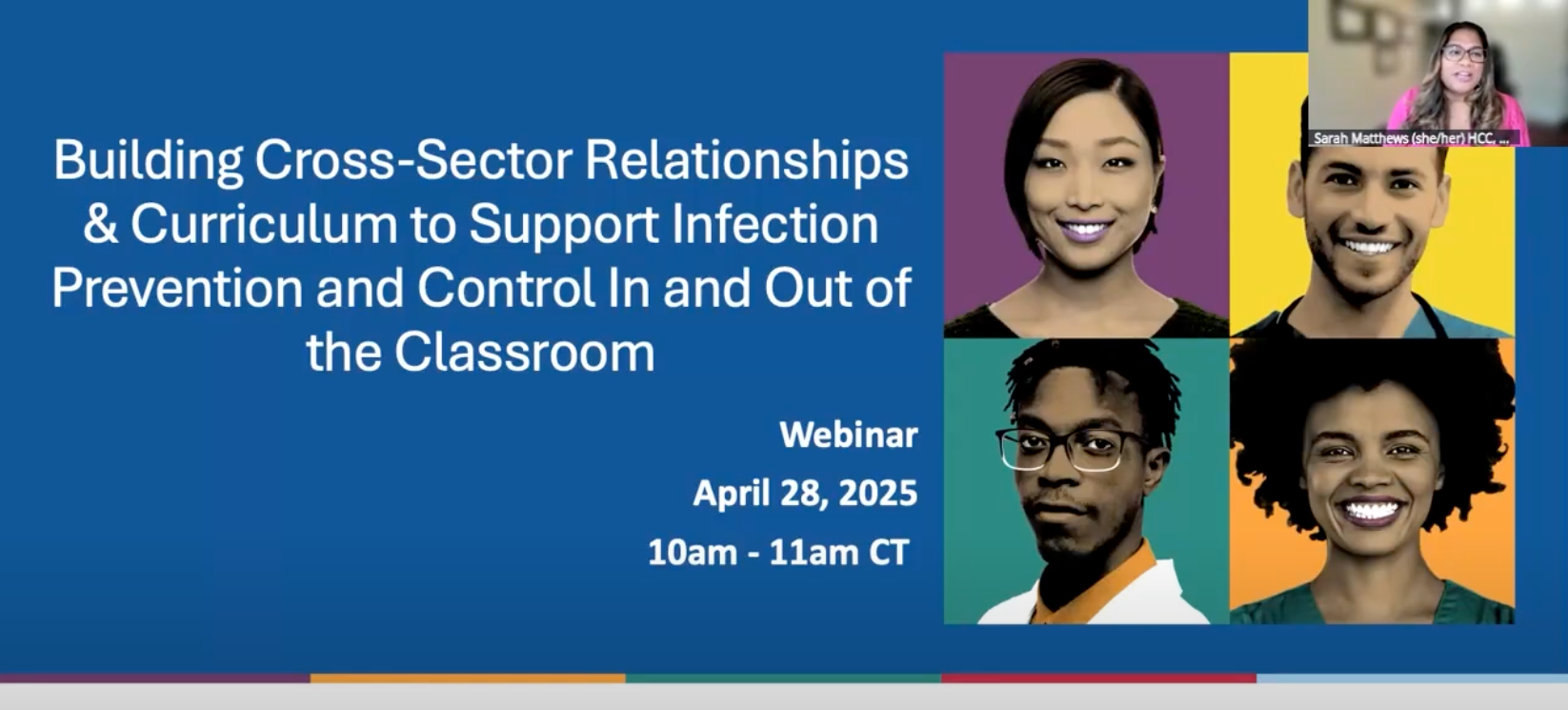
In the post-pandemic landscape, preparing public health students with robust infection prevention and control (IPC) skills is more crucial than ever. This panel highlights best practices from subject matter experts building essential cross-sector relationships between public health and healthcare entities to improve IPC academic content and enhance student practicum placements and career pathways.
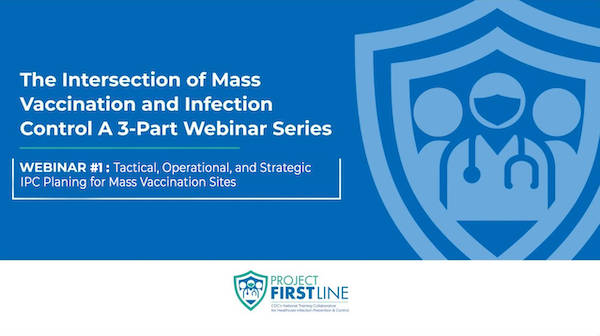
Tactical, Operational, and Strategic Planning
In Part 1, learn how to enhance emergency support from experts in infection control, public health emergency preparedness and management, and industrial hygiene.
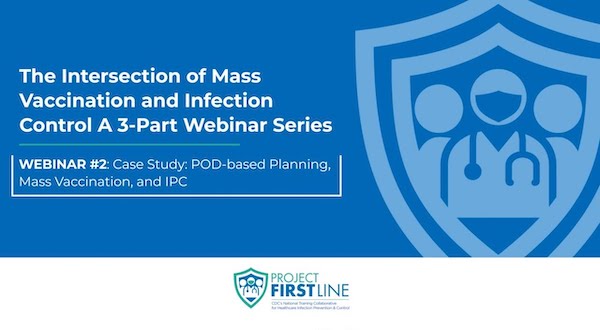
POD-Based Planning and Mass Vaccination
In Part 2, gain a closer look at the successes and challenges of traditional POD-based planning concepts and training during a mass vaccination rollout.
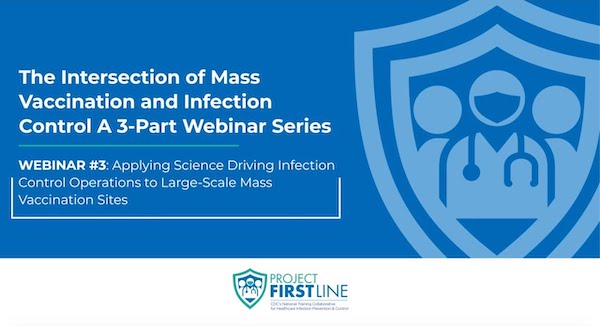
Science Driving Infection Control Operations
In Part 3, understand how to use science-driven operations to securely operate large-scale mass vaccination sites and hear lessons learned from experts after implementation.

Introduction to Infection Prevention and Control for Public Health Professionals
This pathway introduces–or reinforces–the basic skills that serve as the pillars of infection prevention and control work and is designed specifically for public health professionals who have frontline or program support responsibilities in infection protection and control.
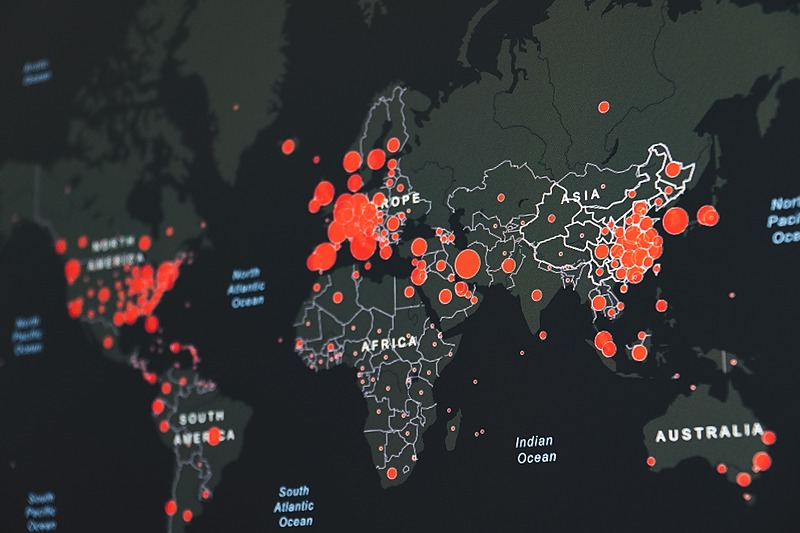
Advancing Infection Prevention and Control for Public Health Professionals
This pathway is designed specifically for public health professionals who have program management and supervisory responsibilities in infection protection and control.

Infection Prevention and Control for Public Health Leaders
This pathway reinforces essential skills, advances programmatic skills, and builds leadership skills that serve as the pillars of the work we do in infection prevention and control and is designed for professionals in advanced or leadership roles.

Infection Prevention and Control Resources and Training
Our multi-organization team utilized a rapid environmental scan to research and identify top-tier trainings on Infection Prevention and Control (IPC) that were 1) geared towards a more general audience and 2) provided services across the spectrum of healthcare facilities.
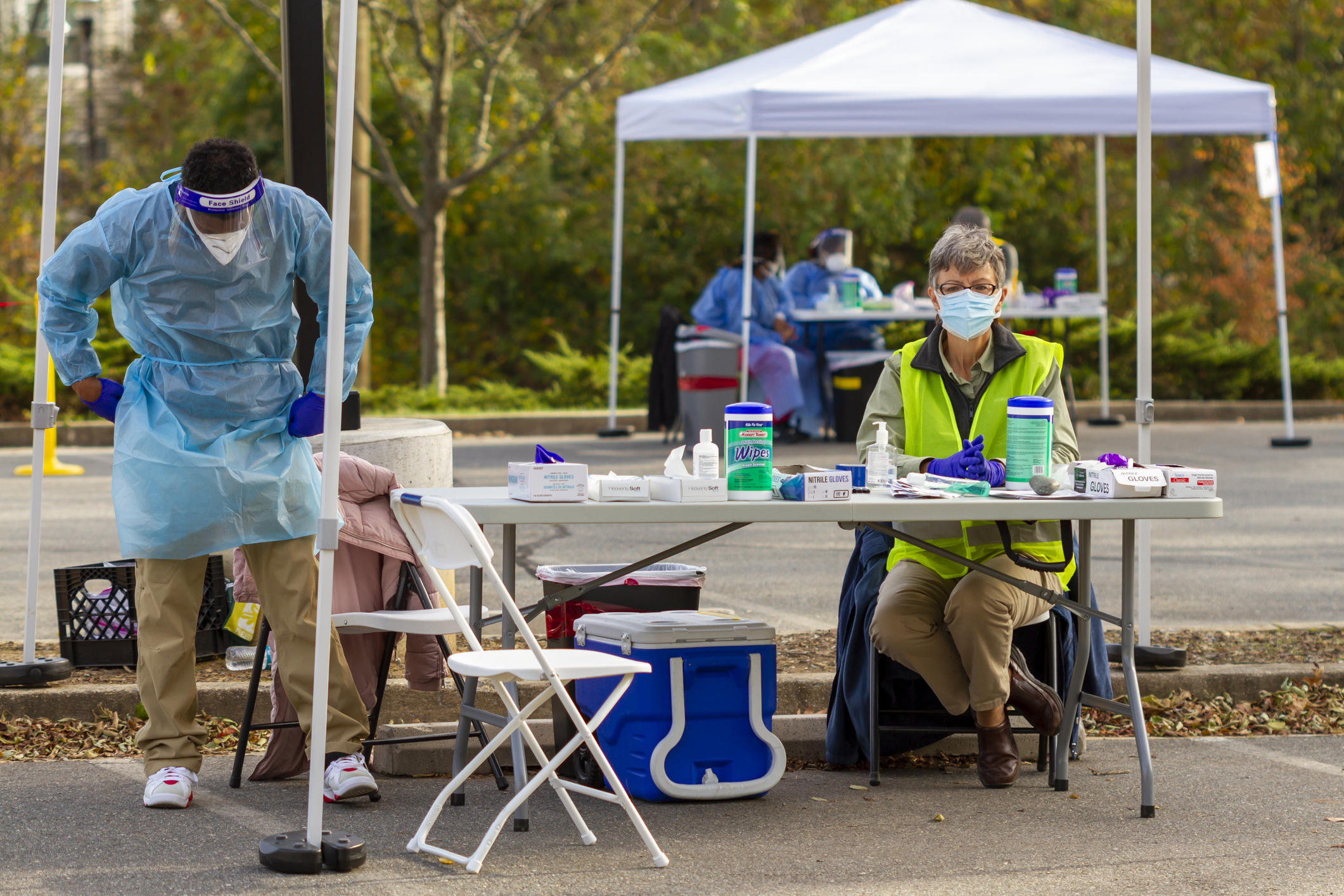
Infection Prevention and Control Trainings & COVID
As COVID-19 spread across the nation, the U.S. utilized infection prevention and control (IPC) trainings and guidance as a tactic to mitigate transmission of the deadly virus. Our team used an environmental scan to identify 317 of these trainings, analyze common trends, and uncover several ways the current trainings and guidance could be improved.

